
What Does a Tour Guide Do?
How do you make your travels more memorable? Let's talk about tour guides, the unsung heroes of every great trip.
A tour guide makes up 85% of what travelers think about a tour. So, if you're running a travel business and want to improve customer satisfaction, start by hiring and/or training great tour guides.
In this guide, we'll explore what makes a great tour guide. We'll look at the skills they should have, like sharing knowledge, ensuring safety, respecting local cultures, and caring for the environment.
How important are tour guides?
Travel guides are the heartbeat of the industry. They turn simple trips into unforgettable experiences by blending stories, culture, and adventure.
These guides do more than just show the way. Whether it's leading a tour through ancient ruins, leading a wildlife safari, or guiding you through a city, they connect people with the world.
So what do they do? We've got 10 key things tourist guides should practice and be trained in.
What does a tour guide do?
1. provides information.
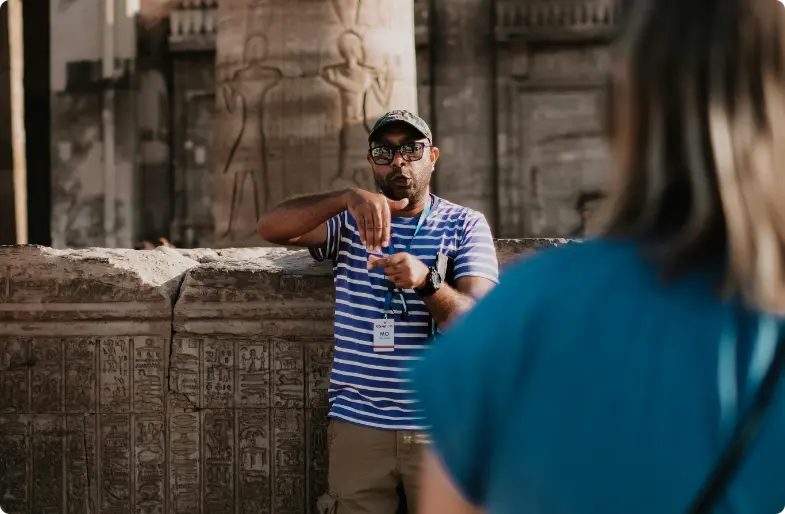
A tour guide's superpower is sharing fascinating information. They don't just show places; they bring them to life with stories about history, culture, and more.
Imagine exploring an ancient site while your guide unveils its secrets, from architectural marvels to dramatic historical tales.
- Why It Matters: This storytelling turns a regular trip into an unforgettable journey. It's the difference between just looking at old stones and feeling the pulse of history beneath your feet. Tourists carry these stories home, making their experience richer and more meaningful.
- The Risk of Falling Short: A guide who can't weave these tales leaves travelers with just snapshots, not stories. It turns an adventure into just another walk, leading to disappointment and forgettable trips. For a travel business, this means unhappy customers and a reputation that takes a nosedive.
2. Guarantees guest safety
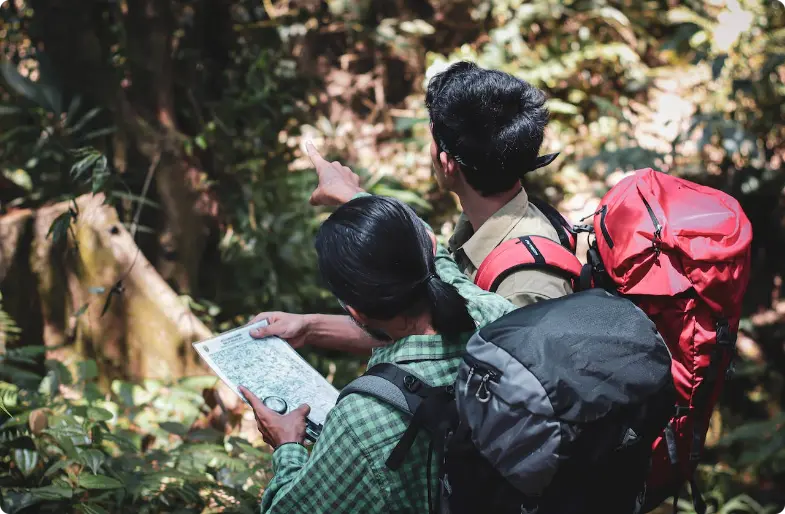
At the core of a tour guide's responsibilities is ensuring the safety and well-being of guests. This includes sticking to safety protocols, guiding guests during activities, and handling emergencies effectively.
Take a wilderness hike, for example. A skilled guide not only checks that everyone has the right gear but also clearly explains safety rules. If a hiker twists an ankle on a tricky trail, a guide's quick response is crucial.
- Why Safety is Key: Safety is the foundation of a successful tour. A guide's ability to manage risks and respond to emergencies not only protects the guests but also builds trust. This trust is essential for an enjoyable and worry-free experience.
- The Consequences of Neglect: Ignoring safety can lead to serious consequences. A lapse in safety measures might result in accidents or emergencies, tarnishing the tour experience and the reputation of the travel business. In the world of travel, a safe journey is as important as an enjoyable one.
3. Manages itinerary

A tour guide's ability to organize and execute a tour itinerary is vital. This involves scheduling activities, coordinating transport, and managing time effectively to guarantee a seamless experience.
Consider a multi-day city tour. Here, the guide carefully plans each day, arranging museum visits, landmark tours, and dining experiences, all while balancing the group's time to maximize their enjoyment.
- Why it matters: Efficient itinerary management is the backbone of a smooth tour. It ensures that every experience is woven seamlessly into the journey, giving guests a well-rounded and hassle-free experience.
- The impact of poor management: If a guide mismanages the itinerary, the tour can turn chaotic, leading to missed opportunities and dissatisfaction. Timely and organized execution is key to keeping the tour on track and ensuring that every moment counts for the guests.
4. Knows how to engage guests

A tour guide's skill at engaging with guests, answering their questions, and offering enlightening insights plays a big role in enhancing the tour experience.
Imagine a wildlife safari where the guide doesn't just point out animals but passionately describes their habits and habitats. They encourage questions, sparking a deeper connection between the tourists and the wildlife around them.
- Why engagement matters: Effective engagement transforms a standard tour into an interactive journey. It's not just about seeing; it's about understanding and connecting. When a guide is interactive, it elevates the tourists' enjoyment and enriches their learning.
- The downside of disengagement: A guide who lacks this ability may leave guests feeling disconnected and uninvolved. Engagement is key to keeping the experience lively, educational, and memorable. Without it, even the most exotic tour can feel flat and unimpressive.
5. Speaks local
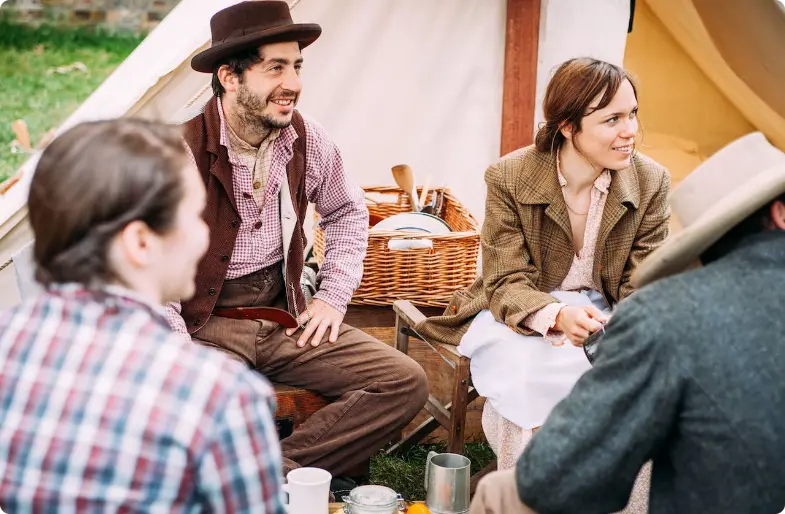
A tour guide's proficiency in the local language, coupled with their ability to translate or interpret for non-native speakers, is crucial for a smooth tour experience.
For instance, in a foreign country, a skilled guide not only fluently translates the tour explanations but also bridges the gap in conversations between tourists and locals. This ensures clear and effective communication throughout the journey.
- Why language skills are vital: Being fluent in the local language is more than just about communication; it's about connection. It helps in accurately conveying the essence of culture and history, and in facilitating meaningful interactions with locals.
- The impact of language barriers: Without strong language skills, misunderstandings can occur, potentially leading to a less fulfilling experience for the tourists. A guide's ability to speak the local language fluently is key to a seamless and enriching travel experience.
6. Excels at tour planning and logistics

A tour guide's role in overseeing and executing the logistical aspects of a tour is crucial. This includes arranging accommodations, meals, permits, and tickets, ensuring everything runs smoothly.
Take a cruise excursion as an example. Here, the guide handles all the details, from coordinating transport from the ship to securing attraction tickets. He also organizes a picnic lunch for the group.
- Why it matters: Efficient planning ensures that every aspect of the tour is hassle-free for guests. It's about providing a seamless experience where tourists can focus on enjoying their adventure, not worrying about the details.
- The consequences of poor planning: Poor planning can lead to logistical mishaps, inconvenience, and frustration. A tour guide's skill in managing these details is essential for a successful and enjoyable tour, enhancing the overall travel experience.
7. Respects cultural aspects & beliefs
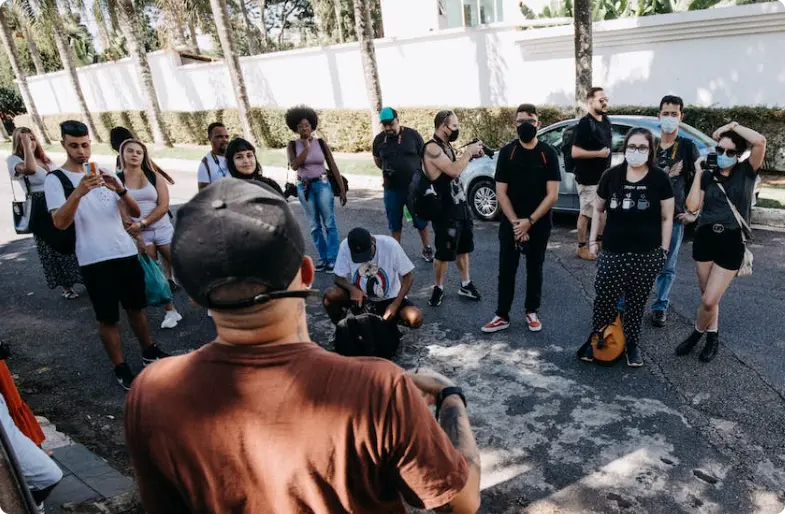
Tour guides' ability to promote cultural respect and sensitivity among tourists is pivotal. It involves ensuring tourists appreciate and follow local customs and traditions.
For example, on a cultural heritage tour, the guide might encourage visitors to remove their shoes before entering a sacred temple. This reinforces the importance of respecting local practices.
- Why it matters: Respecting cultural norms is the key to an immersive and respectful travel experience. It helps tourists connect more deeply with the places they visit and fosters mutual understanding between different cultures.
- The impact of cultural insensitivity: Lack of cultural respect can lead to uncomfortable situations and offend local communities. A guide's role in educating and guiding tourists about these aspects is critical for maintaining harmony and enhancing the overall quality of the tour.
8. Promotes sustainability

A tour guide's commitment to promoting responsible and sustainable tourism practices is crucial. This includes educating tourists on proper waste disposal and minimizing their impact on the natural environment.
Consider a nature hike: a knowledgeable guide leads the way and teaches the group about preserving the ecosystem. They emphasize the importance of leaving no trace, like avoiding littering, to protect the environment.
- Why sustainability matters: Encouraging sustainability is vital for protecting the places we love to visit. It ensures that these destinations remain pristine and enjoyable for future generations. Responsible practices reflect a commitment to the environment and local communities.
- The risks of ignoring sustainability: Neglecting sustainable practices can lead to environmental degradation, disrupting natural balance and diminishing tourist destinations. A guide's role in promoting sustainability is key to maintaining our natural and cultural treasures.
9. Handles the unexpected with ease

Tour guides' ability to handle unexpected challenges, like weather disruptions or participant concerns, is critical.
Imagine a sudden rainstorm hitting during an outdoor activity. An adept guide doesn't just find shelter; they swiftly rearrange the schedule to adapt to the new conditions, ensuring the tour continues smoothly.
- Why it matters: The unexpected is part of travel, and a guide's readiness to tackle these surprises head-on can make or break the tour experience. Their quick thinking and problem-solving skills keep the adventure on track, providing peace of mind for tourists.
- The impact of unpreparedness: If a guide cannot manage unforeseen events effectively, it can lead to disarray and disappointment. Being equipped to handle the unexpected is essential for maintaining the flow and enjoyment of the tour, no matter what comes your way.
10. Good record-keeper

Tour guides' skill in maintaining accurate records of tour-related information, including attendance, expenses, and incidents, is vital. Utilizing an online booking system enhances this process significantly, offering ease and precision in record-keeping.
Consider a guided photography tour. With an online system, the guide can efficiently log participant details, track locations visited, and note special photographic moments. This streamlines organization and provides participants with a detailed account of their experience.
- Why it matters: Online booking systems bring efficiency and accuracy to record-keeping. They simplify data management, making it easier to track and update tour details, leading to better planning and execution. For guests, these records can become cherished summaries of their journey.
- The downside of manual record-keeping: Relying solely on manual methods can lead to errors and oversights, potentially affecting the tour’s smooth operation and perceived professionalism.
An online system mitigates these risks, ensuring records are up-to-date and easily accessible. This digital approach is a significant advantage for both tour guides and operators in delivering a high-quality travel experience.
To sum up, tour guides are much more than just travel facilitators; they are the architects of unforgettable experiences. Their expertise in delivering engaging information, prioritizing safety, seamlessly managing itineraries, and promoting cultural sensitivity transforms a mere trip into an enriching journey.
In recognizing the invaluable role of tour guides, we see them as essential guides to the world's marvels. They bring depth, safety, and insight to every adventure. They are the bridge connecting curious travelers to the wonders around them, making each journey not just a visit, but a story worth telling.
As we applaud these unsung heroes of travel, we understand that their skills and passion truly open the doors to the world's treasures for us all.
FAQ Section
What are the duties of a tourist guide.
Tourist guides provide guidance and extensive knowledge of local history, attractions, and archaeological sites while entertaining their visitors. They ensure compliance with establishment or tour regulations, manage the itinerary, and provide assistance in emergencies. Tour guides educate and interact with clients, making each destination more interesting and engaging.
What do tour guides do daily in their tour guide jobs?
Tour guides conduct walking tours and guided tours, often in art galleries, historical sites, or remote locations. They research and plan each tour, ensuring they have extensive knowledge to share.
Tour guides work confidently with clients, answer questions, and provide engaging and educational experiences. They also coordinate with tour companies and ensure safety practices are upheld.
Is tour guiding a hard career?
Tour guiding as a career can be demanding but also rewarding. It requires confidence in public speaking, proficiency in the English language, and the ability to teach and entertain in an interesting manner.
Tour guides must be adaptable to handle various sites and situations, from busy city tours to remote locations. It's a job that involves constant learning and interaction, making it a good fit for those who enjoy teaching and exploring.
How much does a tour guide make per tour in tour guide jobs?
Tour guide jobs earn vary. Tour guides work for tour companies or as freelancers and are often paid per tour, with rates depending on the tour's length, destination, and the guide's experience.
Guides may also receive tips from clients for providing excellent service. Additionally, online resources and tour operator platforms can offer avenues for tour guides to find more clients and establish a stable income. Research and understanding of the local market are key to estimating potential earnings in this career.
What qualifications or training are typically required to become a tour guide?
Qualifications and training requirements can vary by location and the type of tours offered. Tour guides may benefit from formal education in tourism or related fields, as well as relevant certifications or licenses.
Training often includes developing communication skills, knowledge of the tour's subject matter, and practical guidance on leading tours.
How do tour guides handle unexpected challenges or emergencies during a tour?
Tour guides are trained to handle a variety of situations, including emergencies. They may have contingency plans in place, such as knowing the nearest medical facilities or alternate routes in case of road closures.
Communication with tour participants and swift, calm decision-making are essential skills for addressing unexpected challenges.
What's the role of a tour guide in promoting sustainable and responsible tourism?
Tour guides play a crucial role in promoting responsible tourism by educating tourists about respecting local cultures, wildlife, and natural environments. They encourage responsible behavior, such as minimizing waste and supporting local communities.
Guides also ensure that tour groups follow designated paths and adhere to any specific rules or regulations at destinations of environmental or cultural significance.
Get the latest news and stay in touch with the industry secrets.
By clicking "Subscribe", you agree to our Privacy Policy and the data we do collect.
.webp)
Discover the Most User Friendly Online Booking System
.webp)
FareHarbor vs Rezdy vs TicketingHub: Honest Tour Booking Software Comparison Guide

What to Look For in the Best Online Booking Software?

What is Booking Software Solution?
Keep Reading
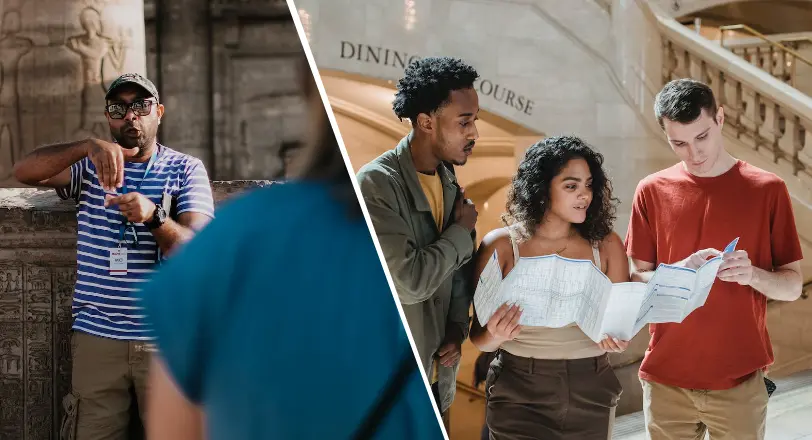
Here's how skilled tour guides elevate travel, offering unique insights and smooth, enjoyable journeys for a truly enhanced experience.
- Explore Courses
- Business of Fashion
- Early Years & Montessori
- Facilities Management
- Health Science
- Special Needs Assisting
- Knowledge Zone
- Corporate Training
- Meet the Team
- Success Stories
- Booking Info
- Full Time Enrolment
- Part Time Enrolment
- Protection for Learners
- Terms of Enrolment

Portobello Blog
What are the essential skills for tour guides.
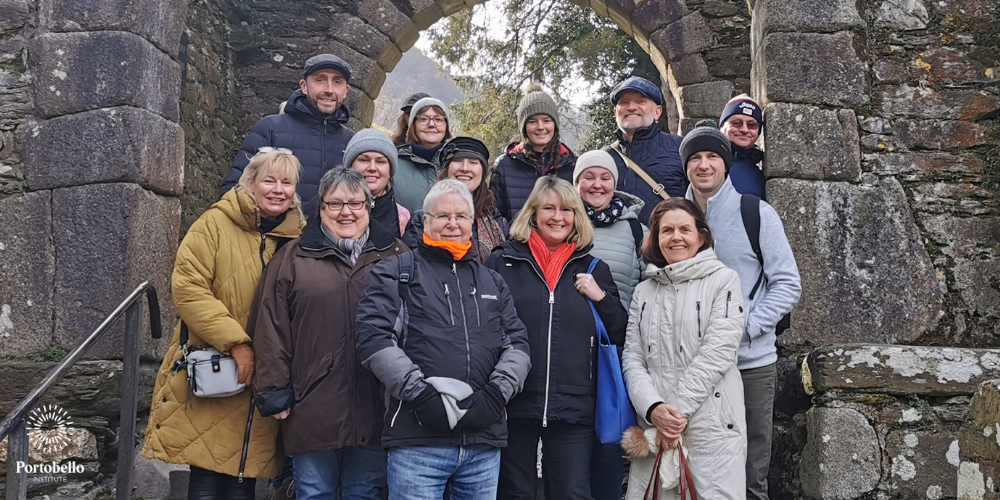
Tour guides hold the remarkable and enjoyable responsibility of transforming seemingly regular journeys into unforgettable experiences filled with magic, wonder and joy.
Whether leading a group through the winding streets of an ancient city, narrating captivating tales of historical events, or immersing travellers in the vibrant culture of a foreign land, tour guides are the gatekeepers of exploration and discovery.
Behind their effortless charm and extensive knowledge lies a set of essential skills that make them the vital link between travellers and their chosen destinations.
In this article, we delve into the key skills that elevate tour guides from mere narrators to exceptional storytellers, ensuring each adventure becomes a vibrant tapestry of memories etched into the hearts of those who wander.
From excellent communication to cultural sensitivity, these skills empower tour guides to craft immersive and enlightening experiences that connect travellers with the essence of a place.
Embark on this journey with us as we unravel the essential skills that unlock the door to extraordinary tours, revealing the profound impact tour guides have on the way we perceive and cherish our travels.
Being a tour guide requires a combination of various skills to effectively communicate information, engage with tourists, and ensure a memorable experience.
Essential Skills for Tour Guides
Communication Skills: Tour guides must possess excellent verbal communication skills to convey information clearly and effectively. They should be able to articulate themselves well, speak loudly and clearly, and adapt their communication style to suit different audiences.
Interpersonal Skills: Building rapport and establishing a connection with tourists is crucial. Tour guides need to be friendly, approachable, and patient. They should be skilled in active listening and be able to respond to questions and concerns with empathy and respect.
Knowledge and Expertise: A comprehensive understanding of the tour's subject matter, whether it's history, culture, art, or nature, is essential. Tour guides must continuously update their knowledge and stay informed about the latest information and developments related to their tour destinations.
Public Speaking: Tour guides often address groups of people, and public speaking skills are vital. They should be comfortable speaking in front of large crowds, maintaining enthusiasm, and engaging the audience throughout the tour.
Organisation and Time Management: Tour guides need to be well-organised and able to manage their time effectively. They must plan itineraries, coordinate transportation, and ensure that the tour stays on schedule while allowing enough time for tourists to explore and enjoy each destination.
Problem-Solving Skills: Unexpected challenges can arise during tours, such as changes in weather, transportation delays, or unforeseen circumstances. Tour guides should be adaptable, quick thinkers, and capable of making decisions under pressure to ensure a smooth experience for their guests.
Cultural Sensitivity: Tour guides often interact with people from different backgrounds and cultures. They should be respectful and sensitive to cultural differences, avoiding offensive remarks or behaviours. Understanding and appreciating diverse perspectives enhances the tour experience for all participants.
Flexibility and Adaptability: Tours may require flexibility due to changing circumstances, such as modifying itineraries or accommodating the individual needs of tourists. Tour guides should be adaptable and capable of adjusting plans while ensuring a positive experience for everyone.
Customer Service: Providing excellent customer service is crucial for tour guides. They should be attentive to tourists' needs, provide accurate and helpful information, and go the extra mile to create a memorable and enjoyable experience for each guest.
Safety Awareness: Ensuring the safety and well-being of tourists is a top priority. Tour guides should have knowledge of safety procedures, and emergency protocols, and be able to identify potential hazards or risks, taking appropriate precautions to keep everyone safe.
Remember, these skills can be developed and honed through training, experience, and a genuine passion for providing memorable tours.
Essential Skills for Tour Guides in Ireland
While many of the essential skills for tour guides apply universally, there are some specific skills that are particularly important for tour guides in Ireland due to unique culture, history, and landscapes.
Here are some essential skills for tour guides in Ireland.
In-depth Knowledge of Irish Culture and History: Ireland has a rich cultural and historical heritage, and tour guides should have a deep understanding of Irish folklore, traditions, music, literature, and historical events. They should be able to provide insightful and engaging commentary on these topics during the tour.
Familiarity with Local Attractions and Landmarks: Tour guides in Ireland should have comprehensive knowledge of popular tourist attractions such as the Cliffs of Moher, the Ring of Kerry, the Giant's Causeway, and historical sites like Dublin Castle and Newgrange. They should be well-versed in the significance, legends, and stories associated with these landmarks.
Expertise in Irish Geography and Natural Features: Ireland's stunning landscapes, including its rugged coastline, lush countryside, and unique geological formations, are major attractions. Tour guides should possess detailed knowledge of the geography, geology, and natural features of Ireland to provide informative and captivating descriptions of the scenery.
Understanding of Irish Traditions and Customs: Irish traditions and customs, such as traditional music, dance (like Irish step dancing), and festivals (like St. Patrick's Day), play a significant role in Irish culture. Tour guides should be familiar with these traditions, explain their origins, and potentially arrange visits to locations where tourists can experience them firsthand.
Proficiency in the Irish Language: Although not mandatory, having a basic understanding of the Irish language can enhance the tour experience, especially when visiting Gaeltacht regions where Irish is the primary spoken language. Being able to introduce some words or phrases adds a personal touch and demonstrates respect for the local culture.
Storytelling and Narrative Skills: Ireland is known for its storytelling tradition, and tour guides should possess excellent storytelling skills to bring the country's history and legends to life. Engaging narratives and anecdotes can captivate tourists, leaving a lasting impression of their experience in Ireland.
Ability to Handle Ireland's Weather Conditions: Ireland is notorious for its ever-changing weather. Tour guides should be prepared for variable conditions, including rain, wind, and fog, and advise tourists on appropriate clothing and equipment. They should also be able to adapt itineraries if necessary due to weather constraints.
Navigation Skills: Navigating through Ireland's cities, countryside, and remote areas is crucial for tour guides. They should be skilled at reading maps, using GPS systems, and providing clear directions to ensure a smooth and efficient tour experience.
Knowledge of Local Cuisine and Pubs: Irish food and drinks, such as Irish stew, soda bread, and Guinness, are an integral part of the country's culture. Tour guides should hold knowledge of traditional Irish cuisine and recommend local restaurants, pubs, and food experiences that showcase the best of Irish gastronomy.
Sustainability and Responsible Tourism: Promoting sustainable and responsible tourism practices is becoming increasingly important worldwide. Tour guides in Ireland should have an awareness of eco-friendly initiatives, conservation efforts, and responsible tourism options, encouraging tourists to appreciate and respect Ireland's natural and cultural heritage.
These skills, combined with the broader set of tour guide skills, can help create a truly immersive and memorable experience for tourists exploring the Emerald Isle.
Read More: Discover Tour Guiding as a Profession: A World Full of Travel, Joy and Endless Opportunities
Get in Contact
If you are interested in becoming a tour guide in Ireland you can check out our upcoming courses here .
If you are interested in choosing the course for the career you want, you can book a consultation call with our expert Travel & Tourism advisor Brandon McLean here , email [email protected] or call 01 892 0035.
You may also like...
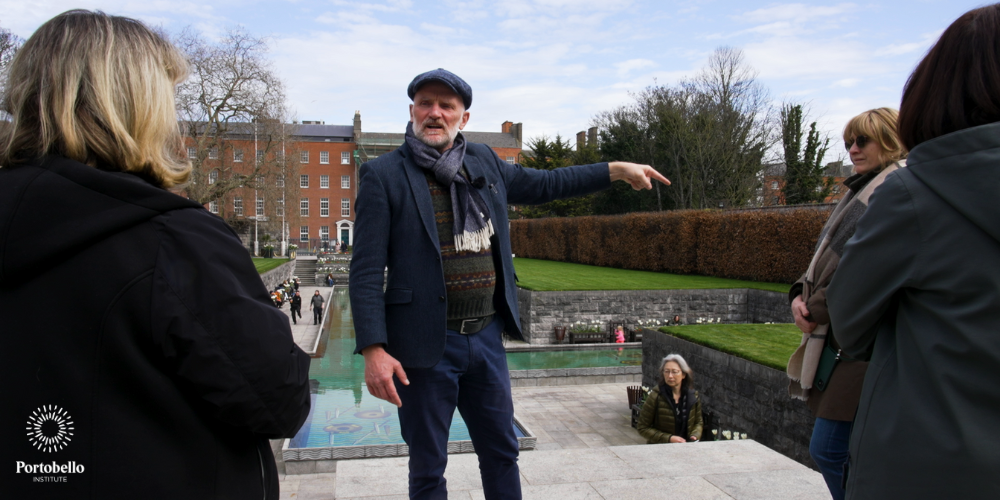
Flexibility and Work-Life Balance as a Tour Guide
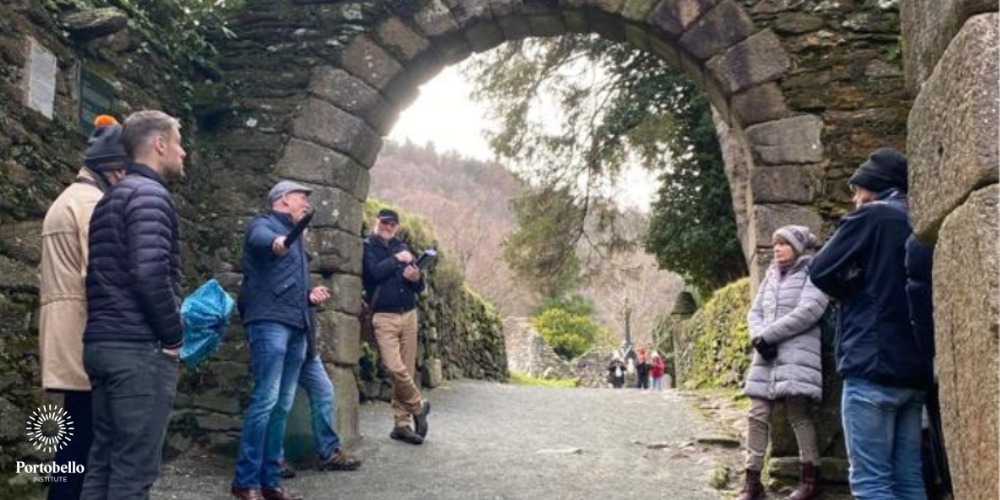
The Joy of Tour Guiding and Cultural Exchange
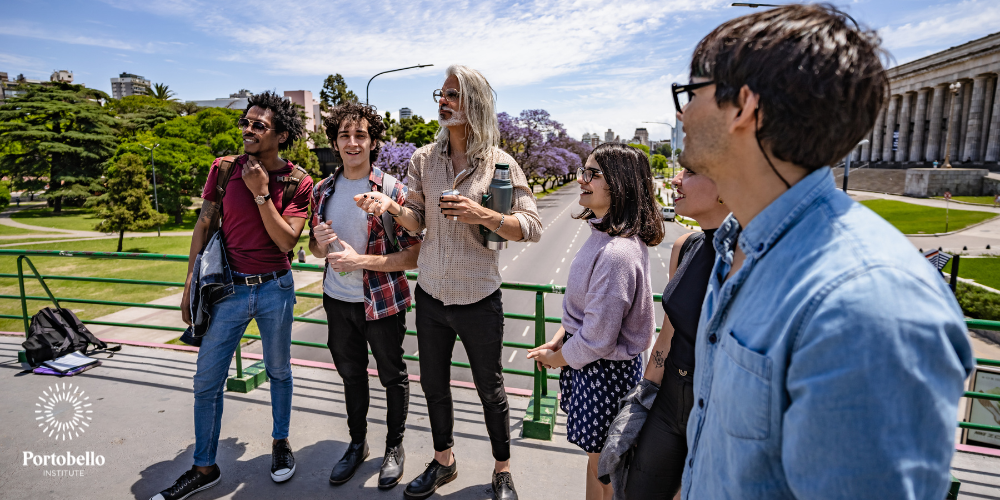
What Top Two Qualities Do All Excellent Tour Guides Have?
Portobello insider.
Join our mailing list to receive the latest insights and exclusive content from your chosen department of interest
© 2020 Portobello Institute | Powered by Wurkhouse
- Transportation
- Single & Multi-Day Tours
- Museums and Attractions
- Destination Marketing Organizations
- Google Things To Do
- Zaui Marketplace
- System Status
- Case Studies
- API Documentation
- Reseller Signup
11 Essential Tour Guide Skills
By: Marium Farooq
January 23, 2024
Table of Contents
Tour guides bear plenty of responsibility in immersing travellers in the culture of a foreign land and serve as the gatekeepers of exploration and discovery. A tour guide is more than just a person who can recite facts about various cities or destinations. They represent the face of the tour company, responsible for engaging the tour group and enhancing the tour experience. Tour guides are the perfect tool for these tours, adding an extra layer of excitement and knowledge to any trip. But behind their effortless charm and extensive knowledge lies a set of essential skills that make them the vital link between travellers and their chosen destinations. From excellent communication to cultural sensitivity, these skills empower tour guides to craft immersive and enlightening experiences that connect travellers with the essence of a place.
Key Skills and Qualities Every Tour Guide Should Possess
Here are some important skills for a tour guide to have that can really make or break the overall tourist experience.
1. Strong Communication Skills
Strong communication skills are extremely important in tour guiding. Tour guides must be articulate, engaging, and capable of answering multiple guest questions. Communication skills on tours often involve public speaking and active listening to ensure everyone in the tour group feels open and heard. At times, they may even have to address questions they’ve answered multiple times already. According to John Voci, a former tour guide with over a decade of experience, having strong communication skills is at the heart of being a tour guide. This is because they don’t simply deliver a speech but must first understand what the tourists already know about the place, what interests them, and then match their expectations with the information provided. A significant aspect of strong communication is the ability to listen, understand, and respond in a way that maintains the interest of the people receiving the information.
2. The Right Energy
Tour guides’ enthusiasm can significantly impact the overall tourist experience. Often, we encounter individuals who are overly enthusiastic about selling something or tend to exaggerate the service or product, and they often come off as annoying or inauthentic. It is extremely important for a tour guide to be energetic and excited about the experiences while simultaneously sounding genuine and relaxed. This helps create a relaxed vibe that tourists can enjoy.
3. Flexibility and Adaptability
Charisma is natural, but a tour guide can only be fully equipped if they have training in all aspects of tours and potential situations that might arise. Often, unprecedented situations arise where the guide must change the schedule and adapt to unforeseen circumstances. Adaptability and flexibility are not only required for these unanticipated situations but are also essential to meet various guest needs and interests, while keeping to a natural flow of the experience.
It is a constant challenge to determine what information needs to be shared and what would be interesting to the tourists. An expert guide may need to adjust the amount of information provided for different locations or the pace of the tour, especially if the tour group consists of individuals of varying ages. As a result, tour guides can demonstrate flexibility and adaptability in different circumstances, enhancing the overall experience of the tour.
A great memory can take you a long way, especially if you are a tour guide. Memorized facts and stories are a significant part of being a successful tour guide. Often, we underestimate this skill; it takes a considerable effort to learn facts about a place and present them in an interesting way. Whether it’s a trip to a museum, garden, or an art gallery, the tour guide’s ability to share information can truly make or break your overall experience. The guide’s knowledge can have a profound impact on how tourists perceive their experience.
Tour guides must possess an impressive memory to recall small details about everything they are showcasing. Without that insight and knowledge, it may seem hollow, no matter how charismatic the tour guide might be. And don’t forget the power in remembering your guests name can have on creating a special experience.
5. Cheerful and Positive Vibes
This is not necessarily a skill but rather a personality trait. A tour guide needs to be someone who is enjoyable to be around. There are individuals who radiate positive energy, making others want to spend time with them. This type of charisma can truly set apart a successful tour guide. One of the crucial aspects of a tour guide’s role is to organize and ensure everyone is entertained and adhering to the schedule. It is important for tourists to rely on the tour guide for guidance rather than doing their own thing.
When a group of tourists comes together, there is often some social awkwardness as they typically don’t know each other. In such situations, it becomes the tour guide’s responsibility to alleviate that awkwardness and create a more comfortable atmosphere.
6. Storytelling and Creativity
There are millions of ways to deliver a speech, and what sets apart a good tour guide is their ability to improvise, their sense of humour, and the skill to create an engaging storyline from historical facts that might otherwise be challenging to grasp or remember. After all, few people want to simply receive a lecture while on vacation. One way to gauge the success of a tour guide is to assess the knowledge tourists gain when leaving the experience and how much value they have derived from it. A tour guide might have memorized millions of facts about a destination, but the ability to pull out the right fact for the audience from their personal knowledge bank and present it in a way that is both interesting and engaging truly determines success.
7. Tech-savvy
In a rapidly advancing technological landscape, it’s no secret that technology wields significant influence. The tourism industry places an increased emphasis on social media marketing, and the unmatched benefits of booking software, coupled with a substantial surge in digital content, give a tech-savvy tour guide a distinct advantage over those lacking technical knowledge. A tech-savvy tour guide can assist tour operators in creating content that can be utilized across various marketing channels and platforms to attract more customers.
8. Improvisational skills
According to John Voci, our Sales Director, who began his career as a tour guide, it is essential for tour guides to quickly assess the group’s state of mind and tailor the tour to create a pleasant experience. For instance, if it’s a walking or biking tour, and the rest point is 30 minutes away but the group members are struggling, possibly due to weather conditions or preexisting health issues, the tour guide might decide to take an early break to ensure the overall experience isn’t too strenuous for the group. This is why tour guides who can easily assess situations and make prompt decisions, instead of strictly adhering to the script or itinerary, are crucial. And to do all this while keeping guests of all speeds engaged takes skill.
9. Professionalism
The work ethic speaks volumes about a tour guide’s ability. They can be smart, humorous, and have extensive knowledge, but if they are unprofessional, miss meetings, arrive late, or are unreliable, they can cause more harm than good. It greatly depends on your guide to elevate your company’s image or potentially tarnish it.
The element of integrity is non-negotiable as they represent the face of your company. A professional guide ensures your guests enjoy a seamless experience, making your brand shine. They not only impart knowledge but also ensure that guests feel valued and well-cared for throughout the tour. And while angry customers may be rare in the tour guide-to-guest relationship, the ability to handle late arrivals or other poor conditions professionally is key; not just for the tour group, but your company’s reputation.
10. First Aid Training
While not all tours are presented with hazardous conditions, ensuring the safety and well-being of your guests is of utmost importance. Since tour guides typically bear the responsibility for the group’s safety, having proper training becomes an invaluable asset. While nature and historical landmarks offer beauty, they may also present risks that first aid training can equip you to handle. This includes being prepared for scenarios such as allergic reactions, injuries from encounters with animals, minor incidents resulting from slipping and falling, and other unforeseen emergencies.
11. Organization and Time Management Skills
Organization and time management skills are imperative for a tour guide. Their responsibilities include planning of itineraries, seamless coordination of transportation, and the essential task of maintaining the tour schedule. Beyond merely adhering to time constraints, tour guides must ensure that the itinerary accommodates exploration and enjoyment for the tourists at each destination.
Being well-organized involves meticulous attention to details, from scheduling transportation to planning activities, ensuring that every aspect of the tour aligns with the expectations and preferences of the tourists. The ability to manage time effectively is not just about punctuality but also about creating a seamless flow that maximizes the tourist experience. An organized tour guide plays a key role in creating a smooth, enjoyable, and memorable travel experience for the tourist group.

Since guests’ satisfaction typically hinges on the Tour Operator’s ability to deliver an unforgettable experience, the tour guide’s skills directly shape the tourist experience. As the primary point of contact, the ability to facilitate a smooth, engaging, and informative experience can significantly influence their perspective of the entire journey.
The role of a tour guide is not merely about sharing information; it’s about crafting an experience that lingers in the memories of the tourists. The twelve essential skills discussed here underscore the multifaceted nature of a successful tour guide.
Book a Demo!
Inside Zaui: Product News, Tips & Tricks
- Tips & Tricks
- Tours & Activities
How to Write a Tour Booking Confirmation Email: 8 Types with Great Examples
How to Write a Tour Booking Confirmation Email: 8 Types with Great Examples Confirmation email templates offer a valuable means...
Top 7 Travel Review Sites for Tour Operators in 2024
Top 7 Travel Review Sites for Tour Operators in 2024 Your customers are the initial guides for your tour and...
11 Tips on How to Increase Sales in a Tour Company
11 Tips on How to Increase Sales in a Tour Company In today’s dynamic travel industry landscape, tour companies face...
Curabitur nec nunc ut augue tincidunt interdum quis a diam. Suspendisse vel justo vitae mauris sodales commodo. Nullam dapibus nisi mi, id lobortis urna scelerisque ac. Duis auctor enim sit amet quam lacinia malesuada.

Shopping Cart
Why good tour guides are important.
- July 28, 2023

The importance of good tour guides for a successful travel experience
When customers book a travel experience with your business, they come with expectations. They rely on your expertise, your local knowledge, and your ability to provide them with an amazing experience.
In case they booked a travel experience that involves a tour guide, they want to travel worry-free. With someone else having the responsibility. The quality of the guide is therefore essential for satisfied customers. A good guide is able to boost the travel experience and add additional value. While a lesser guide does the opposite: leaving customers disappointed and dissatisfied.
A good tour guide does not only boost the travel experience for customers. But they are also responsible for making sure the trip creates positive impact on the destination and minimises negative impact.
“Local tour guides and drivers are the principal interface between tourists, the travel experience, the local community and the environment, and therefore have a huge responsibility.”
In this article
- The importance of good tour guides
The qualities of a good tour guide
Tour guides and sustainability, sustainable tour guide training, reminder guidelines.
- The significance of personal connection
Value your good tour guides
Tour guides have a huge responsibility during the travel experience. Not everyone is or can become a good tour guide. We’ve listed six most important qualities for a good tour guide to take into account.
1. Outgoing and engaging
To make travellers feel comfortable during a travel experience, the tour guide needs to be enthusiastic, outgoing, and engaging. Their task is to involve all people in the group and to create a happy and safe environment. They should be easily approachable for questions or concerns and also invite travellers to be curious and ask more questions.
2. Good communication skills
Besides being outgoing and engaging it’s important the tour guide has good and clear communication skills. This is necessary to make sure everyone is aware of the (day) planning and what’s expected of them. Good communication skills also come in handy when explaining specific do’s and don’ts in a sensitive destination.
3. Knowledgeable and passionate
The true added value of a good tour guide is their local knowledge. When visiting a destination, travellers are interested in for example local habits, foreign fruits, and history facts. They will always look at the guide first for further explanation and background information. Preferably, the tour guide is an expert and passionate about the destination.

4. Organised and punctual
Travellers having to wait on their tour guide because they’re late, are often stressed. And might be dissatisfied about the start of the travel experience. So, it’s important for the guide to always be on time, to have a clear structure and to follow the set itinerary . In case the customer requires a change, this could be possible but only when feasible and well-planned.
5. Patient and able to manage a crisis
Not all travellers are easy-going and flexible. A good tour guide knows how to take care of slower or difficult people. They have to remain patient at all times. They also know what to do in case of an emergency: handling the crisis while maintaining a calm atmosphere where possible.
6. Trained and qualified
It’s not a fundamental quality of a good tour guide, but it does add value to have trained and qualified guides. Guides with an official guide training and/or license are professionally trained to be a tour guide. They are able to organise and run a travel experience following official guidelines.
“We know that it’s not possible to provide an unforgettable travel experience without an excellent tour guide” – Anna Grodzki, manager of Matoke Tours Uganda.
When you are invested in good tourism , you want your travel experiences to be operated in a responsible way. Your tour guides are at the front of the operations and responsible for what actually happens during the travel experience. Therefore, it’s important they are aware and trained on your sustainability policy and practices.
In terms of sustainability, there are five main tasks of a tour guide during a travel experience. By adhering to these guidelines, they’re ensuring a responsible and good travel experience.
1. Treating local communities respectfully
Especially during community-based travel experiences, but also when simply visiting a local market, treating locals with respect is key. Tourism should benefit the local communities and provide positive impact. The tour guide sets the right example by treating locals with respect and ensuring the travellers do as well. A good guide also encourages authentic interaction.
2. Protecting the natural resources
Same as treating locals with respect, natural resources should be protected and well taken care of. This entails not touching and taking any protected flora and fauna from the environment, staying on the tracks, and always taking (plastic) waste out of nature . The guide is responsible for making sure travellers adhere the same guidelines.

3. Ensuring animal welfare
Travel experiences with wildlife are always sensitive and for the sake of the animals, tour guides have to make sure they’re treated well. Not only do they again set the right example, they’re also responsible for reporting mistreatment of animals. Their role is to explain to travellers why certain (captive) animal travel experiences are a no-go and highlight the animal-friendly alternatives.
4. Driving safe and responsible
When driving, the tour guide needs to follow responsible and safe driving guidelines. Keeping to the speed limits, staying on the designated roads, and turning off the engine when standing still are basic aspects. Also, the use of mobile phones is not responsible driving behaviour. In case of safaris , the guide is expected to keep a clear distance from wildlife and to always give them right of way.
5. Raising awareness and educate travellers
During the travel experience, it’s the tour guide’s responsibility all travellers behave responsibly. Even though they should already be informed before their trip, the guide’s task is to remind them and to explain certain rules and regulations. It’s about raising awareness and encouraging travellers to contribute to good tourism during their travel experience.

The most efficient way to make sure your tour guides are following your good tourism practices is training. Provide them with your sustainability policy and explain its practical implementation. Include tasks and guidelines they can relate to and also easily put into practice.
Tour guides are more likely to comply to (new) guidelines and rules if they’re part of the development process. And if they feel they’re contributing to a good cause. Organise a brainstorm session or workshop, ask for their opinion and give them a say. They have more local knowledge and can come up with interesting practices that are useful for everyone.
Best practice example
Matoke Tours’ specialised travel guide training program helps local guides excel in cultural tourism and outdoor adventure tours in Uganda.
To remind them about their training, develop a short one-page document with the practical sustainability guidelines. These guidelines can either be a reminder or a supplement of the actual training. It’s also very valuable to provide to new or freelance tour guides you’ve never worked with before.
By providing tour guides with physical guidelines, they’ll know exactly what’s expected of them on the job. Include the guidelines in their contract but also place them in the vehicles. Not only are they be reminded of it all times, but travellers also notice your effort and their commitment.
If you don’t work with local tour guides directly, make sure your local partner informs and trains them on your basic (good tourism) principles.
“90% of travellers want to experience a destination ‘like a local’ – GetYourGuide”
The significance of authenticity and personal connection
Tourism today is all about authenticity and personal connections, making incredible travel experiences possible. Beyond having knowledgeable and responsible guides, it’s the genuine stories they share that truly captivate travellers. People no longer just want to sightsee; they yearn to experience a destination “like a local.”
A recent survey by GetYourGuide revealed that 90% of travellers express a strong desire to explore a destination from a local’s perspective. Notably, over 60% of millennials emphasize the importance of authenticity in their experiences. This highlights the growing significance of genuine encounters that resonate deeply with travellers. And who could be better suited to foster these connections than knowledgeable guides who possess unique insights into the destination?
Establishing a personal connection with travellers is essential. When travellers bond with their guide, they feel at ease, allowing them to immerse themselves in local culture with curiosity and enthusiasm. The guide becomes a cherished companion, sharing personal stories, historical backgrounds, and adjusting narratives spontaneously based on the travellers’ interests.
To cultivate this essential connection, we present four key tips:
1. Showcasing guides on your website
Provide potential travellers with a glimpse into the personalities and expertise of your guides by featuring them on your website . Introduce each guide, highlight their unique backgrounds and experiences. When travellers can familiarise themselves with the guide beforehand, it boosts excitement and comfort right from the beginning of the journey.
2. Inquiring about travellers’ interests
Prioritise understanding your travellers by asking about their interests after booking. A brief, optional survey with multiple-choice questions about their favorite foods, animals, and other relevant preferences can offer valuable insights. Armed with this knowledge, your guides can create personalised experiences tailored to each individual’s interests.
3. Embrace flexibility in itineraries
To foster authentic and personalised connections, avoid strict scripts and itineraries. Allow your guides to integrate the travellers’ interests gathered from the survey and tailor the experience accordingly. While ensuring essential experiences are covered, the flexibility to accommodate spontaneous detours, such as visiting a local food market or discovering a hidden gem, will enhance overall satisfaction.
4. Encourage engaging conversations
Motivate your guides to engage in meaningful conversations with travellers throughout the experience. By actively listening to their needs, preferences, and curiosities, guides can better understand the group dynamics and adjust their storytelling accordingly. This creates an environment where open dialogue is valued, fostering cultural exchange and authentic connections.
Good and responsible tour guides are hard to find but worth so much if you have found them. Invest time or money in working with reliable partners or train guides yourself. Taking good care of your guides benefits your business and make you more successful long-term.
Committed and happy guides do their best to provide your travellers with the trip of their lifetime by taking that extra step. When done well, this results in satisfied and hopefully repeating customers.
You must be logged in to post a comment.
You have been working all days and you have been good to me and helping me with your good institution learning and guide me through good profession
Great to see you’re benefitting from our content. Looking forward to support you in completing the online course Samuel!
Good article on tour guide. I personally liked this article and will train our local tour guides as mentioned in this article. Once again thanks for sharing this article.
For ur kind information I’m a tour operator based here in Kathmandu, Nepal.
Very good to hear you liked the article and that you’re going to put it into practice. Good luck!
Very practical and informative guidelines. Ii has added alot to my knowledge as tour guide.
Very good to hear Adam!
Anne de Jong

Roadmap to sustainable travel success (free Ebook)
Discover 6 proven paths to best-selling sustainable travel experiences.
Download free roadmap
Read our latest library additions

Understanding Gen Z travel needs and demands

How to integrate sustainability across your website

8 good tourism trends for 2024

Travel Guides, Info & Tips Blog
The Top 25 Qualities of an Effective Tour Guide-Guiding the Way
Are you passionate about travel and enjoy sharing your knowledge with others? Becoming a tour guide might be the perfect career path for you. Being a practical tour guide requires a unique set of skills and qualities that go beyond simply knowing the facts about a destination. In this article, we will explore the 25 qualities of a practical tour guide and how they contribute to creating memorable and enriching travel experiences.
Being an effective tour guide is not just about knowing the destination but also about possessing a range of qualities that enhance the overall experience for travelers. From excellent communication skills to a deep passion for the subject matter, a practical tour guide can make all the difference in creating memorable and meaningful experiences for their guests.
In this article, we will explore 25 essential qualities for any tour guide looking to excel in their profession. Whether you are already a tour guide or aspiring to become one, this comprehensive guide will provide valuable insights and tips to enhance your skills and become an exceptional tour guide.
Table of Contents
What Qualities Do I Need To Be A Tour Guide?
To be a successful tour guide, there are several essential qualities that you should possess.
- Firstly, strong communication skills are vital. As a tour guide, you will need to convey information to your clients clearly and engagingly effectively. Excellent verbal and written communication skills will help you effectively communicate historical facts, local customs, and interesting anecdotes.
- Secondly, a deep knowledge and passion for the subject matter is crucial. Whether you are guiding tourists through a historical city, leading a nature hike, or conducting a food tour, you should have a thorough understanding of the area’s history, culture, and attractions. This knowledge will not only enhance your credibility as a guide but also enable you to answer questions and provide interesting insights to your clients.
- Lastly, being personable and friendly are essential qualities for a tour guide. You will interact with people from various backgrounds and cultures, so being approachable and adaptable is critical. Your enthusiasm and positive attitude will not only make the tour more enjoyable for your clients but also help create a welcoming and inclusive environment.
In conclusion, to be a successful tour guide, you should possess strong communication skills, a deep knowledge and passion for the subject, and be personable and friendly. These qualities will help you effectively engage and connect with your clients, making their experience memorable and enjoyable.
What Skills Make A Tour Guide With 5-Star Quality?
Regarding being a tour guide with 5-star quality, several critical skills are essential. Firstly, excellent communication skills are crucial. A tour guide must effectively convey information, engage with their audience, and answer questions. Clear and concise communication is essential to ensure tourists have a memorable and enjoyable experience.
In addition to communication skills, a tour guide should also have extensive knowledge and expertise in the area they are guiding. This includes historical facts, cultural insights, and local tips and recommendations. A 5-star tour guide is well-prepared and can provide accurate and exciting information, enhancing the tour experience.
Furthermore, a tour guide with 5-star quality must possess exceptional customer service skills. They should be friendly, approachable, and able to create a positive and welcoming atmosphere. A great tour guide understands the importance of personalizing the experience for each tourist and goes above and beyond to ensure their satisfaction. From anticipating needs to providing an exceptional level of service, these skills are vital in creating a memorable tour experience.
What Is The Most Important Quality Of Becoming An Effective Tour Guide?
When it comes to becoming a practical tour guide, several qualities are important to possess. However, one of the most crucial qualities is knowledge. A tour guide must have extensive knowledge about the destination they are guiding tourists through. This includes knowing about the history, culture, landmarks, and other important aspects of the place. Being well-informed allows the tour guide to provide accurate and interesting information to the tourists, enhancing their overall experience.
In addition to knowledge, communication skills are also essential for an effective tour guide. Communicating clearly and concisely is important in delivering information to the tourists. A tour guide must be able to articulate their thoughts and ideas in a way that is easily understandable to a diverse group of people. Good communication skills also involve listening to the tourists’ questions and feedback and being able to respond appropriately.
Lastly, enthusiasm and passion for the job set apart a great tour guide from an average one. A tour guide who is genuinely excited about the destination and their role in showcasing it will be able to create a positive and engaging atmosphere for the tourists. Their enthusiasm will be contagious, making the tour more enjoyable and memorable for everyone involved.
What Are The 5 Roles Of A Tour Guide?
A tour guide plays multiple roles in ensuring a successful and enjoyable travel experience for their guests. Here are the five primary roles of a tour guide:
1. Informer: The primary role of a tour guide is to provide accurate and relevant information about the destination. They should be knowledgeable about the history, culture, landmarks, and other significant aspects of the place. Tour guides should be able to answer questions, share interesting facts, and engage their guests in informative discussions.
2. Interpreter: Tour guides bridge the gap between different cultures and languages. They act as interpreters, translating information and conversations for their guests. They ensure effective communication between locals and visitors, enhancing the understanding and appreciation of the destination.
3. Organizer: Tour guides are responsible for planning and organizing the itinerary. They arrange transportation, accommodation, and activities, ensuring a smooth and efficient travel experience. They handle logistics, such as coordinating schedules, managing reservations, and running any unforeseen circumstances that may arise during the trip.
25 Qualities Of An Effective Tour Guide Pdf
To view a PDF document that provides more detailed information on these 25 qualities of a practical tour guide, please click the link below: 25 Qualities of an Effective Tour Guide PDF.
25 Qualities Of An Effective Tour Guide Ppt
https://www.slideshare.net/jen199629/qualities-of-an-ideal-tour-guide
Skills Of A Tour Guide
- Communication Skills:
- Clear and confident speaking voice
- Appropriate language for the audience
- Ability to engage and connect with travelers
- Responsive to questions and concerns
- In-Depth Knowledge:
- Strong understanding of the destination’s history, culture, and attractions
- Staying updated on current events and changes in the area
- Organization and Time Management:
- Creating well-planned itineraries
- Efficient coordination of transportation and accommodations
- Handling unexpected situations effectively
- Interpersonal Skills:
- Building rapport with clients
- Friendliness and approachability
- Patience and attentiveness
- Sense of Humor:
- Creating a relaxed and enjoyable atmosphere
These skills and qualities collectively contribute to a tour guide’s ability to offer travelers an exceptional experience during their journey.
Characteristics of an Exceptional Tour Guide
- Knowledgeable: Possesses in-depth knowledge of the destination’s history, culture, and attractions.
- Excellent Communication Skills: Communicates information clearly and effectively to travelers.
- Enthusiastic: Inspires excitement and engagement among tour participants with their passion for the subject matter.
- Flexible: Adapts easily to unforeseen situations and changes in the itinerary.
- Organized: Ensures a smooth and efficient tour experience through careful planning and preparation.
- Problem-Solving Abilities: Capable of finding solutions quickly and efficiently, especially in challenging situations.
- Multilingual: Speaks multiple languages to cater to a diverse group of travelers.
How to Become an Effective Tour Guide
- Gain Extensive Knowledge: Conduct thorough research to acquire a deep understanding of the destination you’ll be guiding.
- Develop Communication Skills: Practice and consider attending public speaking courses to improve your ability to convey information effectively.
- Cultivate Enthusiasm: Stay curious and continuously learn about new attractions and experiences to maintain a high passion for your subject.
- Enhance Adaptability: Seek opportunities to work in different environments and practice handling unexpected situations to become more flexible.
- Improve Organizational Skills: Create detailed itineraries and proactively plan logistics for a well-organized tour.
- Sharpen Problem-Solving Abilities: Participate in scenario-based training programs or seek advice from experienced tour guides to become a more effective problem solver.
- Learn Additional Languages: Consider taking language courses or participating in immersion programs to become multilingual.
10 Characteristics Of A Tour Guide
- Knowledgeable
- Communication skills
- Flexibility
- Organizational skills
- Interpersonal skills
- Problem-solving
- Professionalism
- Sense of humor
As A Tour Guide, How Will You Manage Tourist With High Expectations?
Strategies for Managing Tourists with High Expectations
1. Listen Actively: Listen to tourists’ expectations, interests, and preferences.
2. Manage Expectations: Be transparent about what the tour can realistically offer and set clear expectations.
3. Provide Detailed Information: Ensure tourists have comprehensive information about the tour itinerary, attractions, and activities.
4. Be Knowledgeable and Professional: Demonstrate expertise in destinations, history, culture, and local customs.
5. Offer Personalized Experiences: Tailor the tour to cater to individual preferences, arranging special interests-based activities.
6. Maintain Effective Communication: Keep tourists informed about changes and provide alternative options.
7. Handle Complaints Professionally: Address dissatisfaction empathetically, offering solutions to resolve concerns.
8. Seek Feedback: Encourage tourists to provide feedback after the tour to improve future experiences.
What makes a great tour guide and host? | Rick Steves | TEDxSeattleSalon
In conclusion, a practical tour guide is vital in crafting unforgettable travel experiences. With extensive knowledge, excellent communication, and adaptability, they enrich journeys and create lasting memories. Beyond information, they foster a sense of camaraderie and storytelling, making them essential for exceptional adventures.
In conclusion, an effective tour guide plays a vital role in crafting unforgettable travel experiences. With qualities such as extensive knowledge, excellent communication, and adaptability, they enrich journeys and create lasting memories. Beyond information, they foster a sense of camaraderie and storytelling, making them essential for exceptional adventures.
How to become a tour guide
Is becoming a tour guide right for me.
The first step to choosing a career is to make sure you are actually willing to commit to pursuing the career. You don’t want to waste your time doing something you don’t want to do. If you’re new here, you should read about:

Still unsure if becoming a tour guide is the right career path? Take the free CareerExplorer career test to find out if this career is right for you. Perhaps you are well-suited to become a tour guide or another similar career!
Described by our users as being “shockingly accurate”, you might discover careers you haven’t thought of before.
How to become a Tour Guide
Becoming a tour guide involves a combination of education, training, and practical experience. Here is a detailed guide on how to pursue a career as a tour guide:
- Obtain a High School Diploma: Start by completing your high school education or its equivalent. A strong foundation in subjects such as history, geography, languages, and communication will be beneficial in your future career as a tour guide.
- Choose a Specialization: Decide on the type of tours you are interested in guiding. Consider whether you prefer city tours, nature and wildlife tours, historical tours, or any other niche area. This will help you focus your training and develop expertise in your chosen field.
- Acquire Relevant Education: While not always a requirement, pursuing a degree or certificate can enhance your knowledge and credibility as a tour guide. Look for degree programs in areas such as travel and tourism management , cultural studies , or history .
- Gain Local Knowledge: Familiarize yourself with the destinations you wish to guide tours in. Learn about the local history, landmarks, cultural traditions, and attractions. Explore museums, historical sites, and natural areas to deepen your understanding of the area's offerings.
- Develop Language Skills: If you plan to guide tours in a foreign country or cater to international tourists, it's beneficial to acquire proficiency in one or more foreign languages. This will enable you to communicate effectively and cater to a wider range of visitors.
- Obtain Relevant Licenses and Certifications: Check the requirements of the destination or country where you intend to work as a tour guide. Some locations may require you to obtain specific licenses or certifications to operate legally. Research and complete the necessary training or examinations to meet the requirements.
- Gain Practical Experience: Seek opportunities to gain practical experience in the tourism industry. Consider working part-time or as an intern with local tour operators, travel agencies, or visitor centers. This will provide valuable hands-on experience and help you develop your skills in guiding and managing groups.
- Enhance Communication and Interpersonal Skills: Effective communication and interpersonal skills are essential for a tour guide. Work on developing your public speaking, storytelling, and customer service skills. Practice engaging with different types of people and adapting your communication style to suit diverse audiences.
- Join Professional Associations: Consider joining professional associations or organizations for tour guides. These groups provide networking opportunities, access to industry resources, and professional development workshops or seminars.
- Continuously Update Your Knowledge: Stay updated on the latest developments, trends, and attractions in the destinations you guide tours in. Regularly research and read about new historical discoveries, cultural events, or changes in tourist regulations to provide accurate and up-to-date information to your clients.
- Market Yourself: Create a professional portfolio or resume highlighting your qualifications, experience, and areas of expertise. Establish an online presence through a website or social media platforms, showcasing your skills and providing information about the tours you offer.
- Start Guiding: Once you feel confident and ready, start offering your services as a tour guide. You can join an established tour company or operate independently. Consider offering free or discounted tours initially to gain testimonials and build a client base.
Associations and Organizations There are several associations and organizations dedicated to the professional development and support of tour guides. These associations offer resources, networking opportunities, training programs, and advocacy for tour guides. Here are some prominent associations and organizations for tour guides:
- World Federation of Tourist Guide Associations (WFTGA): The WFTGA is an international federation that represents tour guide associations from around the world. It provides a platform for networking, professional development, and advocacy for tour guides. The WFTGA organizes conferences, training programs, and certifications for tour guides.
- National Federation of Tourist Guide Associations (NFTGA): The NFTGA is the umbrella organization representing various national tour guide associations. It aims to promote the profession of tour guiding and provide a forum for sharing best practices and professional development opportunities among member associations.
- International Association of Tour Managers (IATM): The IATM is a professional association for tour managers and guides. It offers resources, training programs, and networking opportunities to support the professional growth of tour managers and guides worldwide.
- Professional Tour Guide Associations: Many countries have their own national or regional tour guide associations that provide support, resources, and training for local tour guides. Examples include the National Tour Association (NTA) in the United States, the Guild of Registered Tourist Guides in the United Kingdom, and the Japan Guide Association (JGA) in Japan.
- World Federation of Tourist Guide Associations - Americas (WFTGA Americas): WFTGA Americas is a regional federation representing tour guide associations in the Americas. It focuses on promoting professional standards, fostering cooperation among member associations, and providing educational opportunities for tour guides in the region.
- Cultural and Heritage Interpretation Associations: There are associations that focus on interpretation and education in cultural and heritage sites. These associations provide resources, training, and networking opportunities for tour guides working in museums, parks, historical sites, and other cultural and natural heritage settings. Examples include the National Association for Interpretation (NAI) and Interpretation Canada.
- Destination-Specific Associations: Some destinations have their own tour guide associations that cater to the needs of local tour guides. These associations often collaborate with tourism boards, industry stakeholders, and government agencies to support the professional development and recognition of tour guides. Examples include the Association of Professional Tourist Guides and Tour Escorts of Italy (APIT) and the Cape Tourist Guides Association (CTGA) in South Africa.
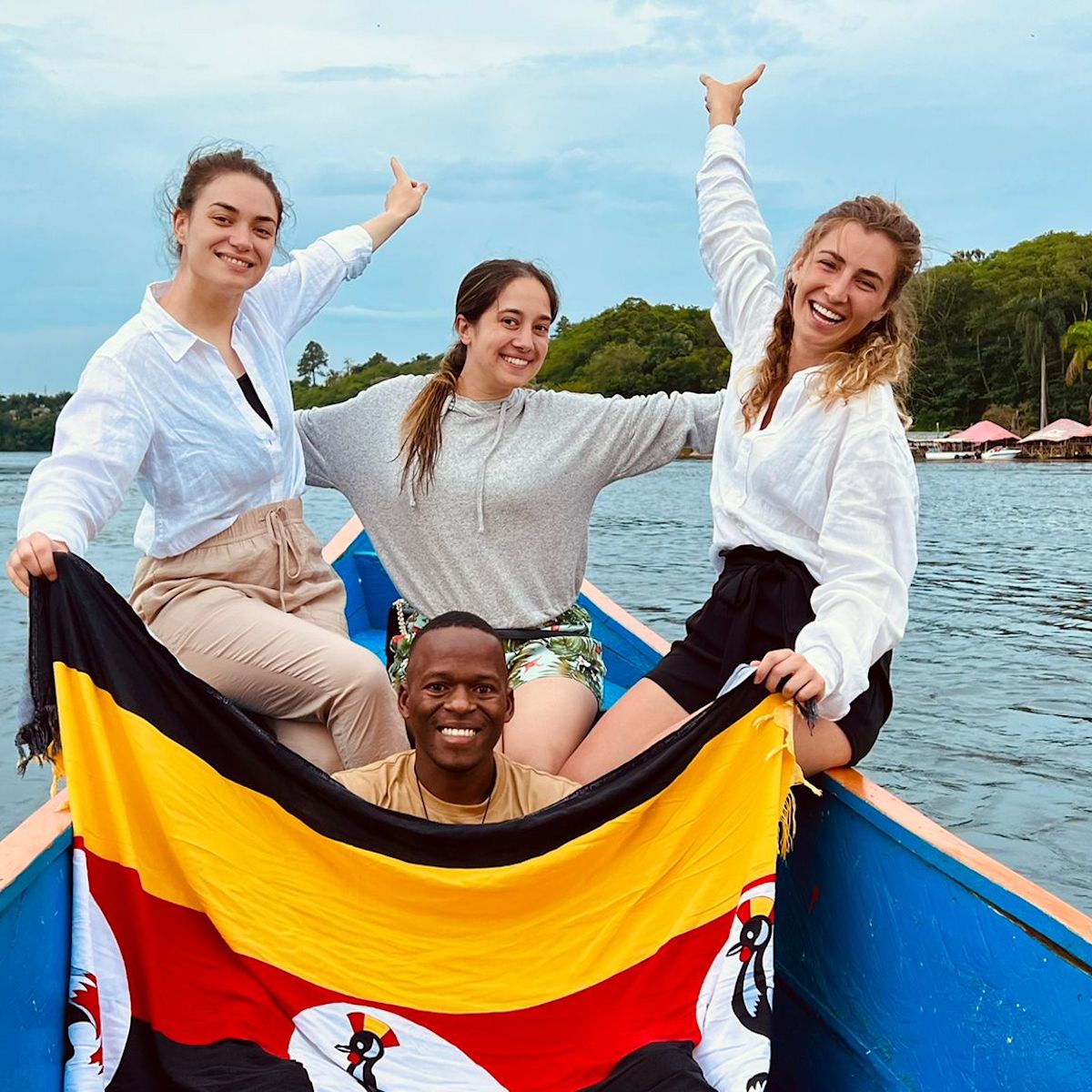
12 reasons why good tour guides are so important
Ah, the tour guide. That special person who welcomes you to their country and looks after you, ensuring you have a fabulous trip! But how and why exactly are they a great addition to a trip? We enumerate ...
1. Tour guides navigate for you
Wondering if you've missed your bus connection is frustrating. So too is getting off at the wrong stop. And fuming at a loss of signal at the very moment you need your app to tell you which exit to take ... nobody needs that.
So yes, primary among the benefits of a tour guide is having someone to do all the navigating for you.
Navigating can include:
- Getting your from the airport to your hotel without hiccough.
- Leading you through the warren of streets in an old town.
- Taking the lead on a trek so you don't go in a circle.
- Even just ensuring you find your way out of that enormous botanic garden.
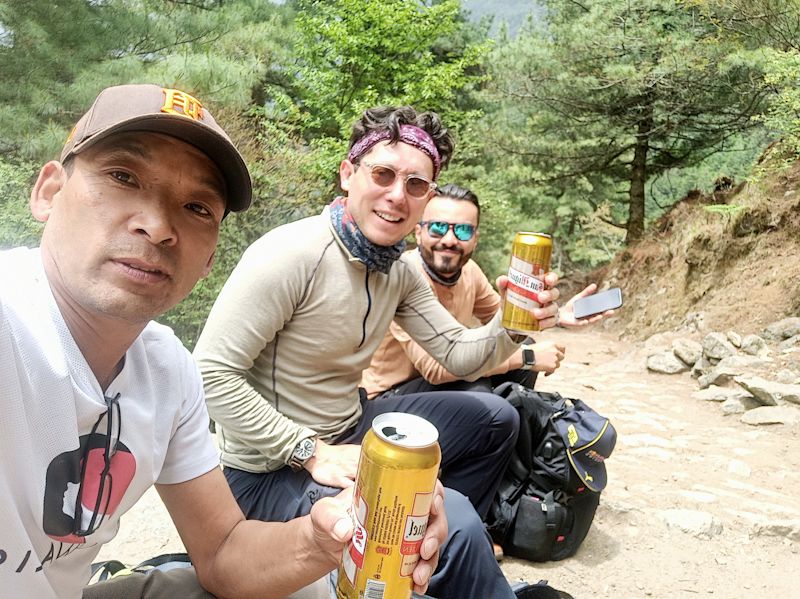
Some of our trekkers with their selfie-taking guide Angelu on the EBC trek
Navigating can include driving you
A tour guide also often drives you around. Or in some cases, they'll acquire a vehicle and driver for you.
This is a big help, saving your from the hassle of a car hire. You also won't have any heart-stopping moments when you pull out and realise you're facing oncoming traffic. And you won't ever come back to your vehicle to discover you didn't feed a hidden parking meter.

On safari, your tour guide is also your driver
2. Tour guides do your admin for you
This is a biggie. Tour guides take care of all of your admin for you, like:
- Preordering permits and pre-booking accommodation.
- Paying admittance fees beforehand, saving you the need to queue.
- Coordinating travel times for buses, trains, flights, etc.
- Overseeing the transfer of luggage.
- Ordering and collecting packed lunches, drinking water and the like.
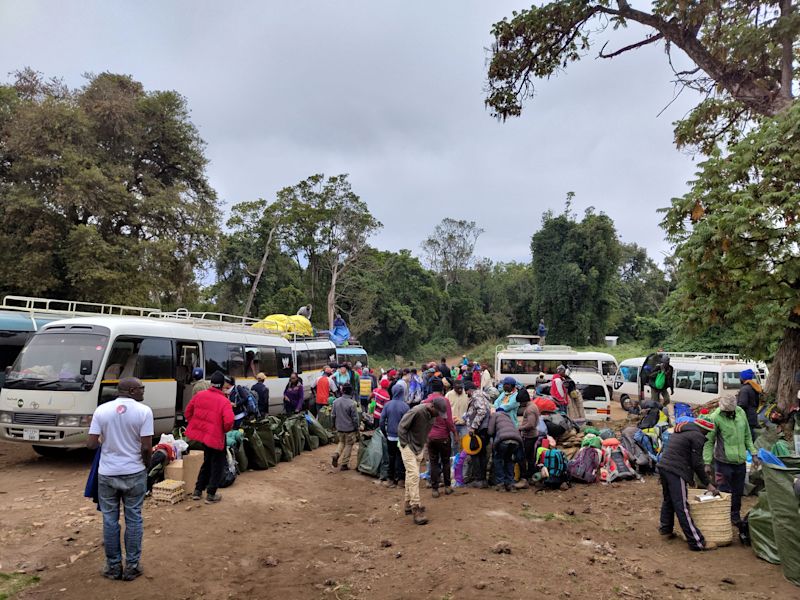
Some of our trips, like Kilimanjaro climbs, involve a LOT of admin!
3. Tour guides keep you safe
If safety was the only benefit of a tour guide, we think it would be enough for us to be super pro tour guides! A tour guide looks after you from arrival to departure.
It's worth pointing out that at Follow Alice we believe tour guides should be locals. One of the reasons for this (although there are certainly others as well) is that only locals can truly know the do's and don'ts of their society and environments in order to keep you safe.
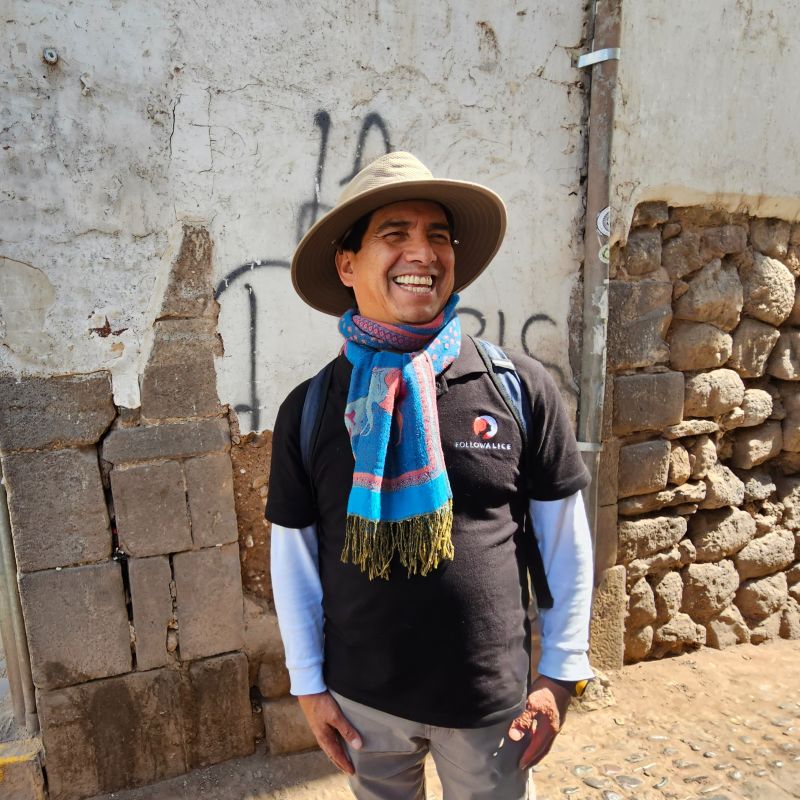
Mario is our Cusco and Inca Trail lead guide
Local tour guides are there with you to ensure:
- You don't go into any dangerous areas.
- You're not accosted by overly zealous vendors.
- Your belongings are kept safe.
- You don't get bamboozled by shysters.
- You don't pick a poisonous plant, or pet a treacherous animal.
The list could go on.
Tour guides also ensure you don't get 'little things' wrong, like wearing sandals on a day when they know you need closed, sturdy shoes.
Adventure tour guides are especially important
The adventure tour guide offers a whole other level of safety and security. Whether it's guiding you safely through islands on a kayaking adventure, or leading you through thick forest on a trekking trip, they're there to ensure you:
- Set out with the right clobber to protect you from the elements.
- Stay on path and don't get lost.
- Don't push yourself too hard (sometimes by monitoring your vitals).
- Receive timely and appropriate treatment (medical or otherwise) should you need it.
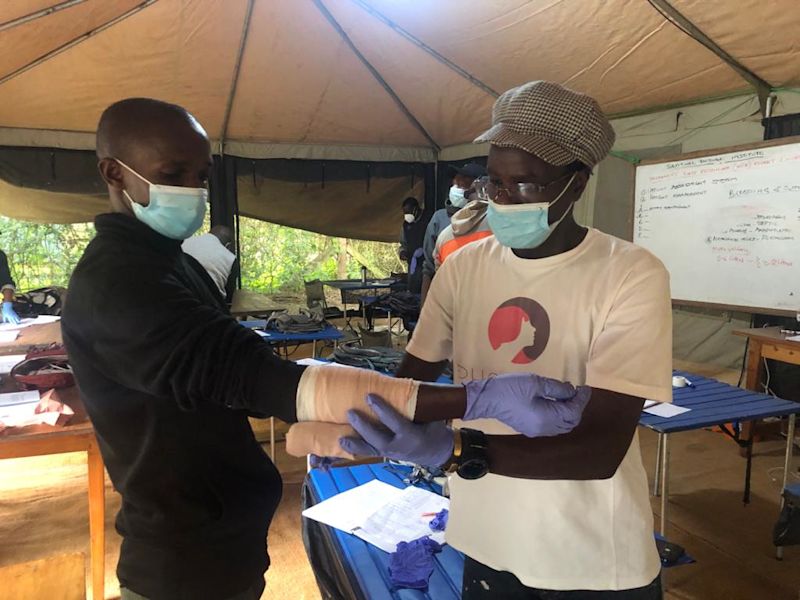
Chris, our Tanzania local leader, doing his refresher mountain first aid course
It's impossible to overstate the value of a tour guide in keeping you safe, especially on an adventure trip.
4. Tour guides are interpreters
A tour guide speaks the language of the locals, and as such is your ever-present translator. Without a tour guide, you wouldn't be able to communicate with some locals. You'd also miss out on many interesting insights and some beautiful moments of connection.
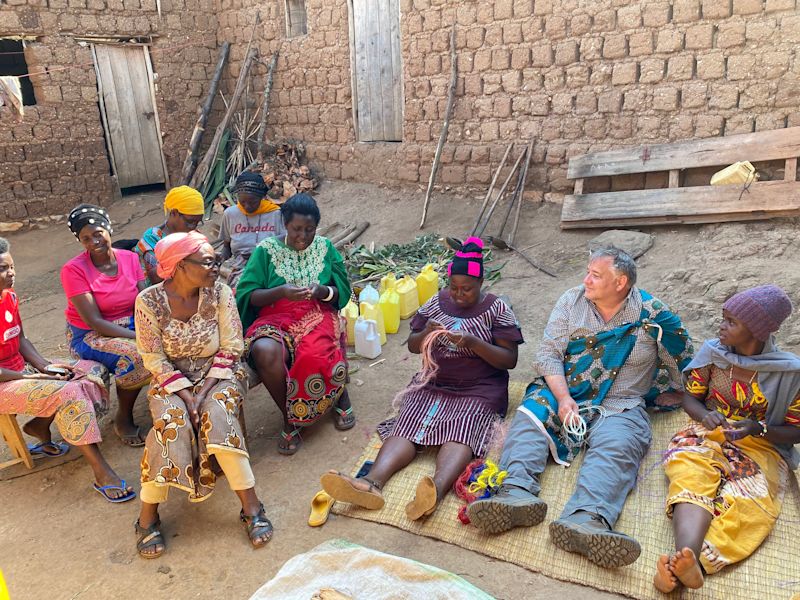
Brad and Rebecca opted to do a homestay in Rwanda through Azizi Life
Remember to always ask before taking photos of locals; your tour guide can assist in this to ensure nothing is lost in translation.
5. Good tour guides explain things to you
It's easy to find out the name of the bridge you're walking over. But do you want to know why it's called that? And yes, you can take a pic of a gorgeous tree and use an app to tell you it's name. But do you want someone there to explain why, for instance, the bark is stripped away near the base?
Tour guides are there to answer your questions, and also supply answers to questions you hadn't even thought to ask!
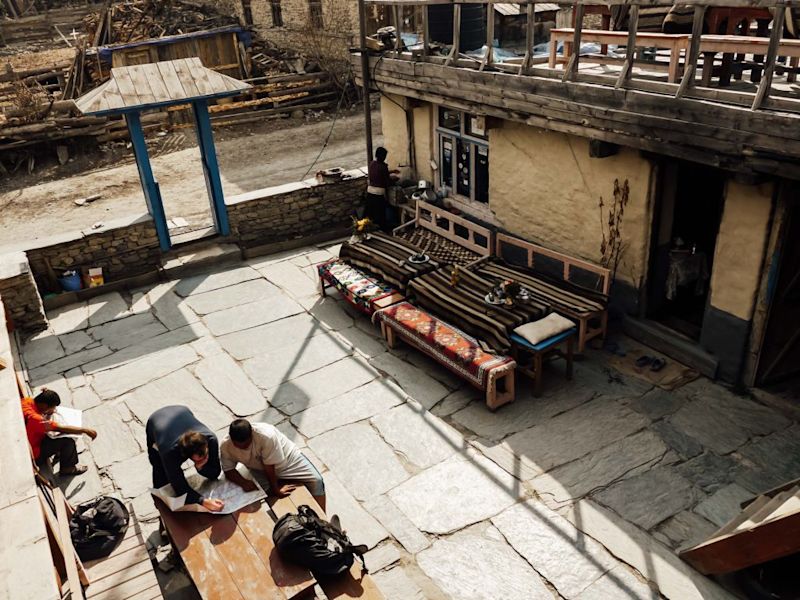
An Annapurna Circuit trek guide explaining tomorrow's route
Tour guides have intimate knowledge of the area and can drop all sorts of fabulous knowledge bombs.
Tour guides also give you insights into how locals feel about what's going on in their country and around the world. So from them you get to learn about some truly local perspectives. And we all know that logic isn't universal – what seems logical to one culture can be very different in another, and it helps to have a guide with you to illuminate such things.
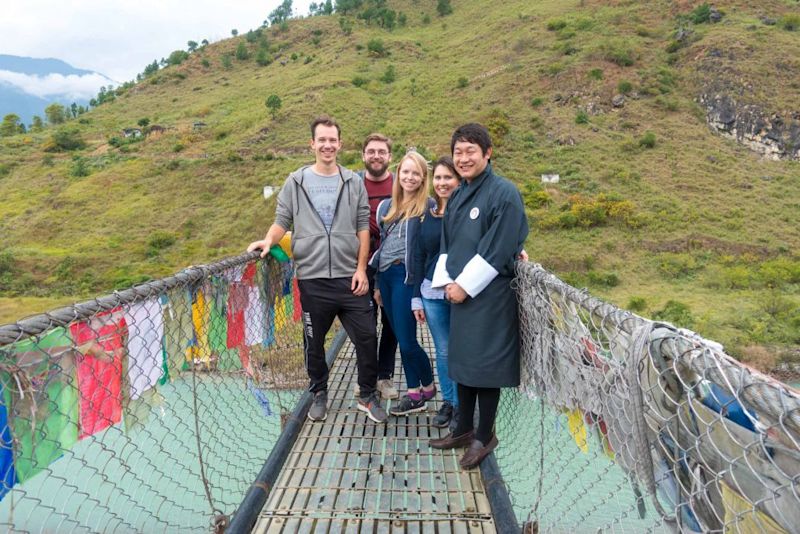
A Follow Alice group with their Bhutanese tour guide
Finally, tour guides are there to ensure you don't blunder unnecessarily in terms of local customs and sensitivities. They can also advise you ahead of time if you need to dress smartly or cover up in order to enter certain places.
6. Good tour guides get you good deals
When you travel with a tour guide, they (and the tour company they work for) are able to get you the best deals. They know which days have cheaper admittance fees, for instance. They can also sometimes get tour guide discounts that aren't available to tourists.
Finally, when you join a tour guide who's leading a large group, they're often able to get some sweet group discounts.
7. Good tour guides are photographers
Sometimes it's great to hand the camera to someone else to take a photo with you in it. 📸
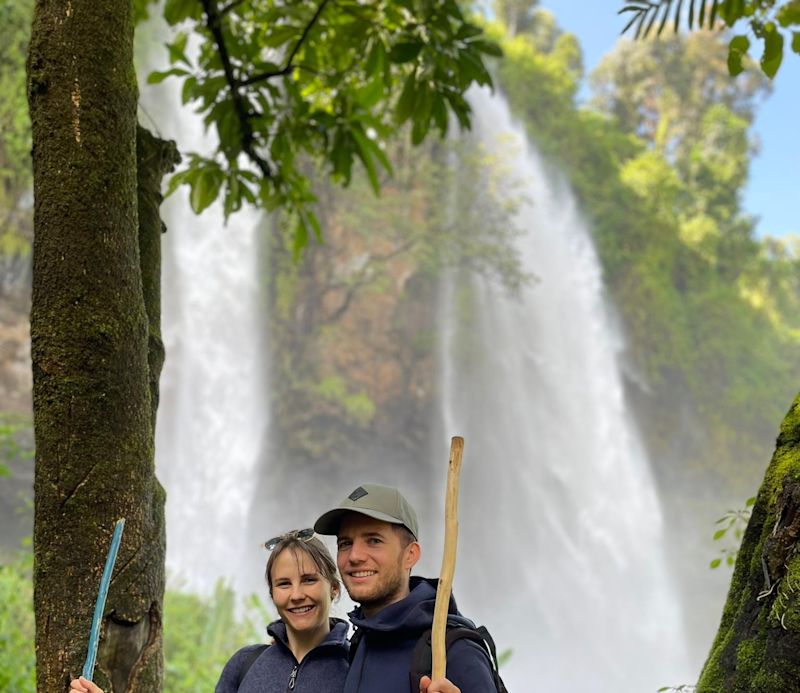
They can take a snap for you ...
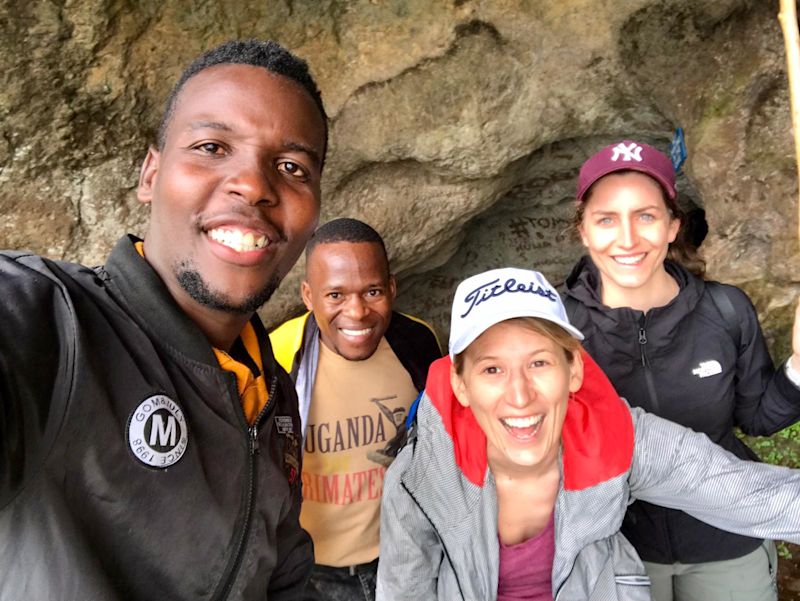
... or a selfie with all of you in it!
8. Good tour guides encourage you
On tough adventures like high-altitude trekking, most of us end up in need of some encouragement when the legs tire and the mind starts to tell you sneaky lies like you can't keep going. Your guide is invaluable is encouraging you in such moments. They can also provide little tips for the mind and body to help you to keep going.
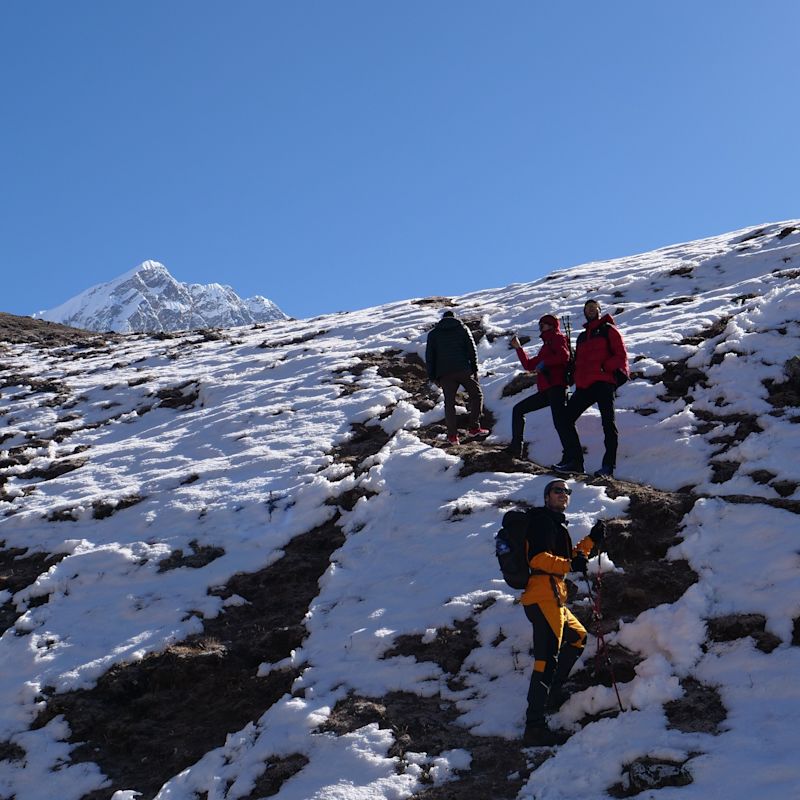
One of our groups tackling the tough Kala Patthar near Everest Base Camp
A good tour guide believes in you and knows how to help you to believe in yourself.
We can't tell you how many folks have told us that they would literally not have made it to the summit of Kilimanjaro if it hadn't been for the support of their guides.
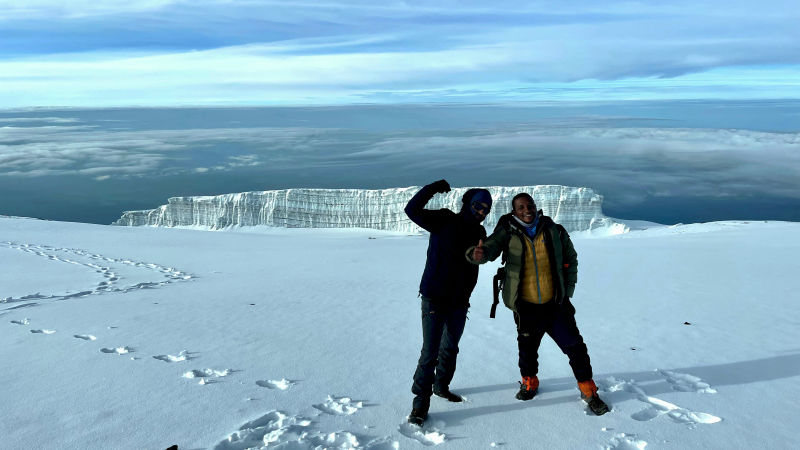
Our client George K. took this fab pic of two of his Kilimanjaro crew members
9. Good tour guides ensure you miss nothing
A tour guide knows the area intimately and knows of people, quiet spots and experiences that aren't discussed on any website. They're there to ensure you get the most out of your time, and have the most authentic experience possible.
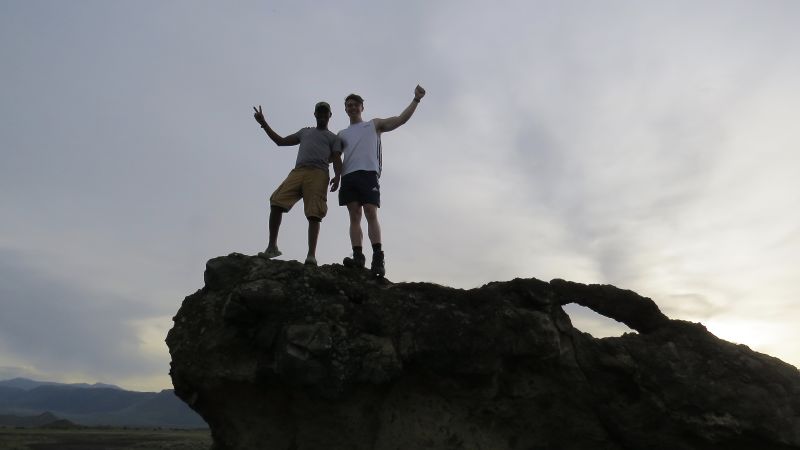
Dean with his safari guide Heri on a walk near Lake Natron
This includes seeing animals!
Safari guides are trained to spot hard-to-see animals that city-dwelling mortals would surely miss. It's amazing the number of camouflaged animals and birds that safari guides are able to point out to clients.
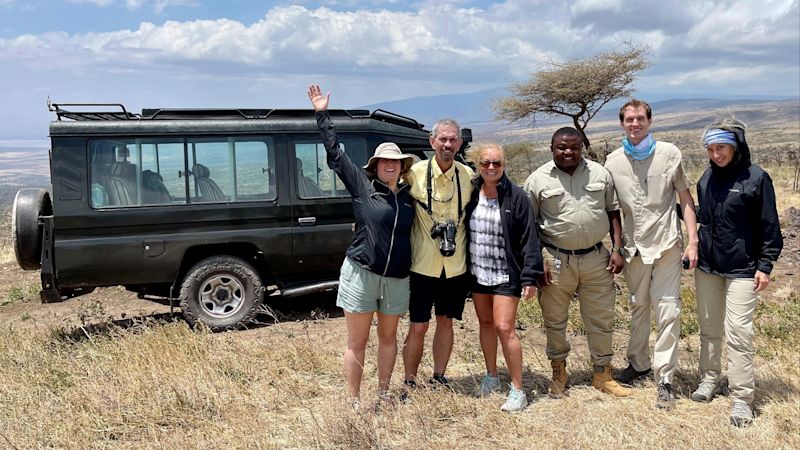
Dannielle took this pic with her group's safari guide in Tanzania
They give you recommendations
A tour guide can also be invaluable in terms of recommendations for markets and shops to pop into, museums, galleries and palaces to visit, gardens and parks to explore, and so on.
And the reverse is true too. They know what places to avoid because they're actually letdowns, overcrowded or overpriced.
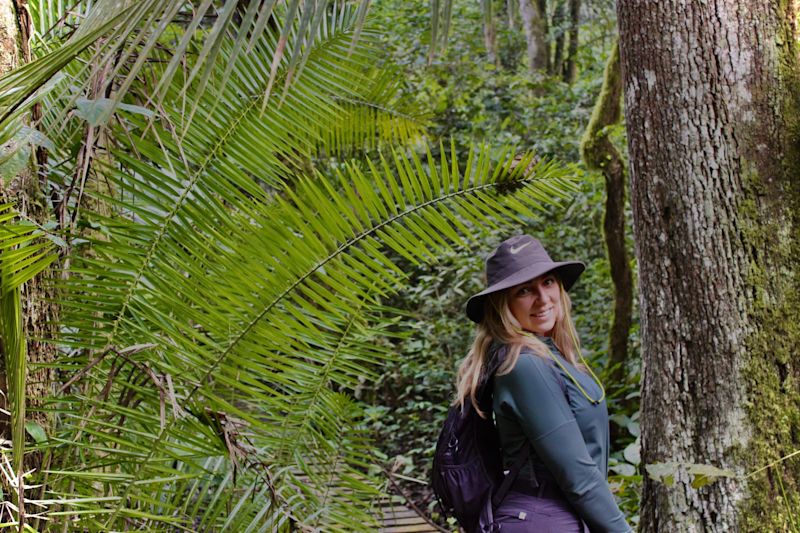
Amber on a chimp trek in Uganda
Tour guides also know where the locals like to eat – and those are often the places with the tastiest and best-prices meals. And when you have a local with you, there's no possibility of feeling awkward, like not knowing if you should seat yourself or wait to be seated. (Your tour guide is also a good person to ask about tipping customs.)
10. Good tour guides pivot when necessary
If you arrive somewhere and it's closed for renovations, or unexpectedly overcrowded, then your tour guide is able to pivot and suggest the next best option, or an alternative, to ensure you still maximise your time in the destination.
They really do take the headache out of travelling!
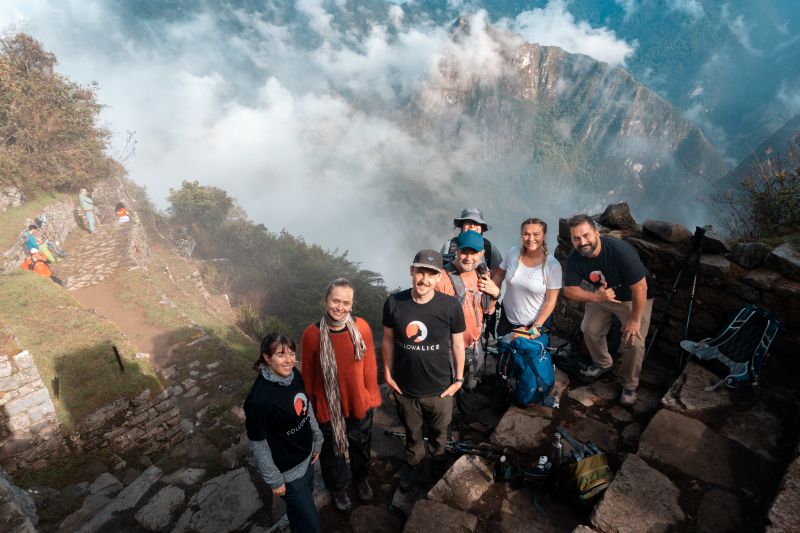
An experienced guide can pivot when necessary in a way that still gives you a memorable trip
11. Great tour guides celebrate your wins with you
A really great tour guide is invested in your trip. They want you to get the most out of the experience. And if it's an adventure trip with a set goal in mind, they want you to succeed in that!
Then, when you reach your mark, or push yourself beyond what you thought possible, a great tour guide is there to celebrate with you! They add to the victory moment by high-fiving you and generally making a fuss. 😄
Also, if you're a solo traveller, then it's especially wonderful to have another person there to make a noise about your win with you.
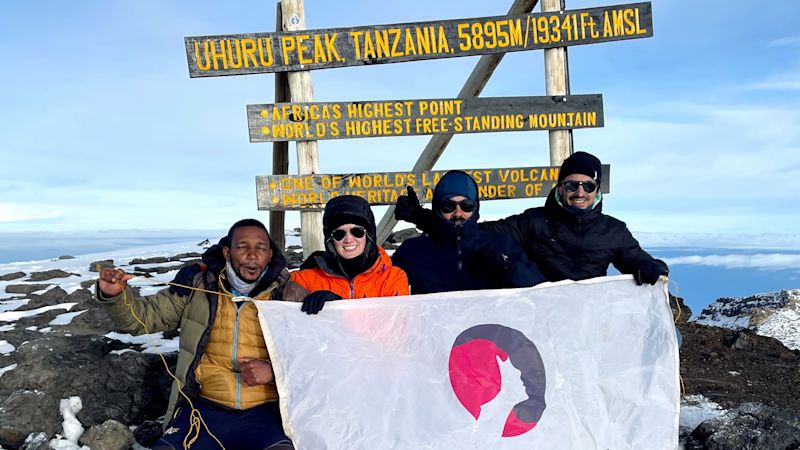
Tour guides are there to celebrate your achievements with you!

12. Great tour guides can even become friends
Sometimes, your tour guide adds so much to your trip, and you spend so much time together, that you end up becoming friends!
We cannot begin to tell you how many times this has happened on our trips. In their post-trip feedback, our clients often express not just gratitude for the encouragement and support of their guides, but also a genuine affection for these special people with whom they bonded and shared an incredible adventure.
One picture that perhaps best sums this up is this one below of Jack with one of his Kilimanjaro crew members at the end of the climb ...
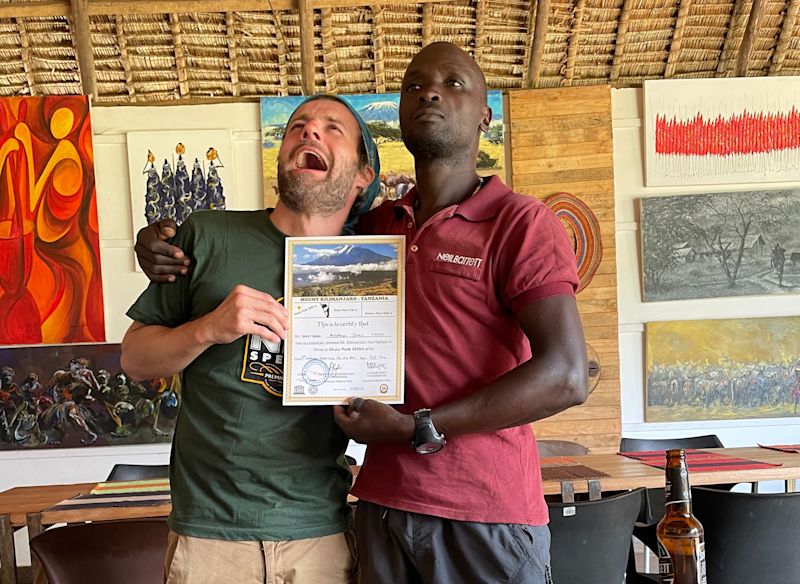
Jack and David celebrating with Jack's summit certificate
Winter is here! Check out the winter wonderlands at these 5 amazing winter destinations in Montana
- Travel Guide
How To Get A Tour Guide License
Published: December 12, 2023
Modified: December 28, 2023
by Dinnie Ostrowski
- Plan Your Trip
- Travel Tips
Introduction
Becoming a tour guide is an exciting and fulfilling career choice for those who have a passion for travel, exploration, and sharing their knowledge with others. As a tour guide, you have the opportunity to immerse yourself in different cultures, showcase breathtaking landmarks, and create unforgettable experiences for your clients.
However, being a tour guide is not just about having a love for travel; it requires a certain level of expertise and professionalism. One of the crucial steps towards becoming a professional tour guide is obtaining a tour guide license. This license not only provides credibility but also allows you to legally operate as a tour guide.
In this comprehensive guide, we will walk you through the process of obtaining a tour guide license, from the requirements to the exam preparation and beyond. Whether you’re considering a career as a tour guide or currently working in the industry and looking to formalize your credentials, this article will provide you with all the information you need to get started.
So, let’s dive in and explore the world of tour guide licensing!
Why Become a Tour Guide?
Becoming a tour guide offers a unique and rewarding career path with numerous perks and advantages. Here are some compelling reasons why you should consider becoming a tour guide:
- Passionate about Travel: If you have a deep love for exploring new destinations and immersing yourself in different cultures, being a tour guide allows you to turn your passion into a profession. Every day on the job is an opportunity to explore new places, discover hidden gems, and share your enthusiasm with others.
- Sharing Knowledge: As a tour guide, you have the privilege of sharing your extensive knowledge and expertise with travelers. Whether it’s historical landmarks, local traditions, or interesting anecdotes, you get to educate and entertain your clients, providing them with a deeper appreciation of the destinations they visit.
- Creating Memorable Experiences: Being able to create unforgettable experiences for your clients is one of the most rewarding aspects of being a tour guide. From witnessing awe-inspiring natural wonders to participating in unique cultural activities, you have the power to make a profound impact on people’s lives, leaving them with cherished memories that last a lifetime.
- Flexibility and Independence: As a tour guide, you have the freedom to choose your schedule and work on a freelance basis or with a tour company. This flexibility allows you to strike a healthy work-life balance and pursue other interests or personal commitments.
- Personal Growth and Development: Being a tour guide requires continuous learning and self-improvement. You have the opportunity to expand your knowledge about different destinations, develop your communication and leadership skills, and enhance your cultural awareness. It’s a career that promotes personal growth and allows you to constantly evolve.
- Meeting New People: One of the most enjoyable aspects of being a tour guide is the chance to meet people from all walks of life. You get to interact with travelers from different countries, backgrounds, and cultures, fostering connections and friendships that transcend borders.
These are just a few of the many reasons why becoming a tour guide can be a fulfilling and gratifying career choice. It offers a unique blend of adventure, learning, and personal growth, allowing you to embark on a journey like no other.
Requirements for Obtaining a Tour Guide License
Obtaining a tour guide license requires meeting specific requirements set by the regulatory authorities in your region or country. While the exact requirements may vary, here are some common prerequisites:
- Minimum Age: Most jurisdictions require tour guides to be at least 18 years old or older.
- Educational Background: While a formal educational background may not be mandatory, some regions may require tour guides to have completed a high school diploma or equivalent.
- Language Proficiency: Depending on the location and target audience, tour guides may need to demonstrate fluency in one or more languages. Proficiency in English is often a requirement in many tourist destinations.
- Knowledge and Expertise: Tour guides are expected to have a comprehensive understanding of the destinations they operate in, including historical significance, cultural traditions, and local attractions. Some regions may have specific knowledge requirements, such as passing a geography or history exam.
- First Aid and Safety Training: To ensure the safety of their clients, tour guides may be required to undergo first aid and safety training. This may include certification in CPR (Cardiopulmonary Resuscitation) or other relevant courses.
- Background Checks: Many jurisdictions require tour guides to undergo background checks to ensure they have no criminal record or history of unethical behavior.
- Licensing Fees: There may be licensing fees associated with obtaining a tour guide license. These fees can vary depending on the jurisdiction and may need to be renewed periodically.
It’s important to note that the specific requirements for obtaining a tour guide license can vary from country to country or even from region to region within a country. It is recommended to research and consult the regulatory authorities or tourism organizations in your desired location to ensure you meet all the necessary criteria and understand the process.
Once you have a clear understanding of the requirements, you can begin exploring tour guide training programs to gain the necessary knowledge and skills to excel in your career as a tour guide.
Researching Tour Guide Training Programs
Acquiring the right training and education is essential to becoming a successful and proficient tour guide. It is important to thoroughly research and evaluate tour guide training programs to find the one that meets your specific needs and goals. Here are some factors to consider when researching tour guide training programs:
- Accreditation and Reputation: Look for training programs that are accredited by recognized tourism authorities or institutions. Research the reputation of the training provider and read reviews or testimonials from previous students.
- Curriculum and Course Content: Evaluate the curriculum and course content of the training program. Ensure that it covers essential topics such as destination knowledge, customer service, communication skills, safety procedures, and other relevant areas specific to tour guiding.
- Delivery Method: Consider the delivery method of the training program. Some programs may be offered online, while others may be conducted in-person or through a combination of both. Choose a format that suits your learning style and availability.
- Duration and Schedule: Assess the duration of the training program and the schedule of classes or modules. Determine if it fits your availability and if you can commit to the required time for learning.
- Practical Training and Field Experience: Look for programs that offer practical training and hands-on experience. Practical exercises, site visits, and opportunities to shadow experienced tour guides can greatly enhance your learning and skill development.
- Certification and Licensing: Check if the training program provides certification or prepares you for the tour guide licensing exam in your region. Having recognized certification can enhance your credibility and increase your chances of securing employment or starting your own tour guide business.
- Cost and Financial Aid: Consider the cost of the training program and whether any scholarships, grants, or financial aid options are available. It’s important to evaluate the value of the program in relation to its cost.
- Networking Opportunities: Find out if the training program offers networking opportunities or connections with industry professionals. Building a strong network can open doors to job opportunities and mentorship.
Take your time to compare different tour guide training programs, gather information, and ask questions to ensure you make an informed decision. Remember, the quality of your training can have a significant impact on your future as a tour guide. Once you have selected a training program, you can proceed with the application process and work towards obtaining your tour guide license.
Choosing the Right Tour Guide Training Program
Choosing the right tour guide training program is crucial to your success as a professional tour guide. With numerous options available, it’s important to consider the following factors in order to make an informed decision:
- Reputation and Accreditation: Look for training programs with a solid reputation and accreditation from recognized tourism organizations or institutions. This ensures that the program meets industry standards and provides reputable certification upon completion.
- Curriculum: Evaluate the curriculum and course content. It should cover essential topics such as destination knowledge, guiding techniques, customer service, safety protocols, and communication skills. Consider whether the program aligns with your specific interests and goals.
- Delivery Method: Determine whether the training program is offered online, in-person, or through a combination of both. Choose a method that suits your learning style and availability. Online programs offer flexibility, while in-person programs provide hands-on experience and networking opportunities.
- Duration and Schedule: Consider the duration of the program and its scheduling. Evaluate whether it fits your timeframe and commitments. Some programs may be intensive and time-consuming, while others may be more spread out over a longer period.
- Practical Experience: Look for programs that offer practical training and field experience, such as simulated tours, site visits, or internships. Practical experience is crucial for developing the necessary skills and confidence to excel as a tour guide.
- Cost and Value: Consider the cost of the training program and the value it provides. Compare the fees with the curriculum, instructors’ qualifications, and additional benefits offered. Remember, a higher cost doesn’t always guarantee a better program, so weigh the value against your budget.
- Networking Opportunities: Research whether the training program provides networking opportunities with industry professionals, tour operators, or alumni. Networking can open doors to job opportunities, mentorship, and valuable connections within the tourism industry.
- Reviews and Testimonials: Read reviews and testimonials from previous program participants. Feedback from past students can provide valuable insights into the quality of the program, instructors, and overall experience.
Take your time to research and compare different tour guide training programs based on these factors. Consider your personal preferences, learning style, budget, and long-term goals. Gathering information and making an informed decision will greatly increase your chances of selecting the right training program to kickstart your career as a professional tour guide.
Applying for a Tour Guide License
Once you have completed the necessary tour guide training program, the next step is to apply for a tour guide license. The application process may vary depending on your location and the specific requirements set by the regulatory authority. Here is a general guide on how to apply for a tour guide license:
- Gather Required Documents: Start by preparing all the necessary documents for the application. This may include identification documents, educational certificates, proof of language proficiency, first aid and safety training certifications, and any other documents specified by the regulatory authority.
- Fill Out Application Forms: Obtain the official application forms from the relevant licensing authority. Make sure to carefully fill out the forms, providing accurate and up-to-date information. Pay attention to any required supporting documents that need to be submitted along with the application.
- Pay Application Fees: Check the licensing fee requirements and make the necessary payment as instructed. Keep records of your payment and any receipts provided.
- Submit Application: Compile all the required documents, including the completed application forms and any supporting materials. Submit the application package to the designated licensing authority within the specified timeframe. Confirm that you have included all the necessary items to avoid delays or processing issues.
- Follow Up: After submitting your application, follow up with the regulatory authority to ensure that they have received your application and to inquire about the estimated processing time. Stay informed and address any additional requirements or requests for clarification promptly.
- Attend Interviews or Examinations: Depending on the jurisdiction, you may be required to attend an interview or sit for a tour guide examination as part of the licensing process. Prepare for these assessments by reviewing your training materials, practicing your communication and presentation skills, and refreshing your knowledge of the destinations you plan to guide in.
- Receive License: Once your application is approved, you will receive your tour guide license from the regulatory authority. This license may include your name, photograph, and unique identification number, certifying you as a licensed tour guide.
It is important to note that the application process may take some time, so it’s essential to submit your application well in advance of any planned tour guiding opportunities. Be patient and follow any additional instructions or requests from the licensing authority, ensuring that you meet all the obligations and requirements for obtaining your tour guide license.
Preparing for the Tour Guide Exam
One of the important steps in obtaining a tour guide license is preparing for the tour guide exam. The exam is designed to assess your knowledge, skills, and readiness to become a licensed tour guide. Here are some key steps to help you prepare for the tour guide exam:
- Review Study Materials: Start by reviewing the study materials provided during your tour guide training program. This includes textbooks, lecture notes, handouts, and any additional resources recommended by your instructors. Focus on key topics such as destination knowledge, historical facts, local traditions, and tourist attractions.
- Create a Study Plan: Develop a study plan that helps you organize your study sessions effectively. Allocate dedicated time each day or week for reviewing different topics. Break down your study plan into manageable chunks to cover the entire syllabus without feeling overwhelmed.
- Take Practice Exams: Look for practice exams or sample questions that mimic the format and content of the actual tour guide exam. Practicing with these exams will help you familiarize yourself with the types of questions you may encounter and improve your time management skills.
- Utilize Online Resources: Take advantage of online resources such as study guides, flashcards, and interactive quizzes to reinforce your understanding of key concepts. Online forums and discussion platforms can also provide valuable insights and additional information shared by experienced tour guides.
- Simulate Guided Tours: Practice delivering guided tour presentations to family and friends or record yourself giving a tour commentary. This will help improve your public speaking skills, confidence, and overall presentation style. Seek feedback for areas of improvement and make necessary adjustments.
- Stay Updated on Current Events: Stay informed about current events, local news, and updates related to the destinations you plan to guide in. This will demonstrate your commitment to providing up-to-date information to tourists and may be relevant to the exam.
- Join Study Groups: Consider forming or joining study groups with fellow tour guide trainees or colleagues. Collaborating with others can enhance your learning experience through shared insights, discussions, and the ability to learn from different perspectives.
- Take Care of Yourself: Make sure to get enough rest, eat nutritious meals, and engage in regular physical activity. Taking care of your overall well-being will help you maintain focus, retain information better, and perform well during the exam.
Remember that effective exam preparation requires consistency, dedication, and a proactive approach. By following these steps and customizing them to your learning style, you can feel better prepared and confident as you head into the tour guide exam.
Taking the Tour Guide Exam
Taking the tour guide exam is a pivotal moment in your journey towards becoming a licensed tour guide. Here are some essential tips to help you navigate through the exam and increase your chances of success:
- Arrive Early and Prepared: Arrive at the exam venue early to avoid any potential stress or delays. Make sure to bring all the necessary documents such as your identification, exam admission ticket, and any required materials specified by the exam administrators.
- Read Instructions Carefully: Take your time to carefully read and understand the instructions for each section of the exam. This will help you allocate your time effectively and ensure that you fulfill all the requirements.
- Manage Your Time: Dividing your time strategically is key to completing all sections of the exam. Prioritize questions that you feel confident about and leave more challenging or time-consuming ones for later. Sticking to a time management plan will help you avoid rushing through the exam and make the most of the allotted time.
- Answer What You Know First: Begin by answering questions that you feel comfortable with and have a good understanding of. This will boost your confidence and give you a positive start. As you progress through the exam, gradually tackle the questions that require more thought or effort.
- Read Each Question Thoroughly: Pay close attention to the wording and context of each question. Ensure that you fully understand what is being asked before selecting your answer. Be cautious of any trick questions or negative phrasing that could lead you astray.
- Use Process of Elimination: If you are unsure about a particular question, use the process of elimination to narrow down your choices. Eliminating obviously incorrect options will increase your chances of selecting the correct answer.
- Double-Check Your Answers: If time allows, review your answers before submitting the exam. Look for any errors or inconsistencies that you may have missed during your initial pass. Correcting any careless mistakes can make a significant difference in your overall score.
- Stay Calm and Focused: Keep a calm and focused mindset throughout the exam. If you encounter difficult or challenging questions, take a deep breath and approach them with a clear mind. Stay positive and trust in the knowledge and skills you have acquired during your training.
- Follow Exam Etiquette: Adhere to the rules and regulations set forth by the exam administrators. Avoid any form of cheating, maintain silence during the exam, and refrain from engaging in any activities that may be deemed inappropriate or disruptive.
Remember, while the tour guide exam may be challenging, it is also an opportunity for you to showcase your knowledge and capabilities. Stay focused, believe in yourself, and trust in your preparation. With a calm and confident mindset, you are well on your way to successfully completing the tour guide exam.
Post-Exam Requirements
After successfully completing the tour guide exam, there are a few post-exam requirements that you may need to fulfill to complete the licensing process. These requirements can vary depending on your location and the regulations set by the governing authority. Here are some common post-exam requirements:
- Submit Additional Documentation: The licensing authority may request additional documentation after you have passed the exam. This could include proof of completion of training programs, first aid and safety certifications, or other relevant documents that were not required during the initial application.
- Background Checks and Character References: Some jurisdictions may conduct thorough background checks to ensure that individuals obtaining tour guide licenses have a clean record. This may involve verifying your criminal history, obtaining character references, or conducting interviews with relevant parties.
- Obtain Liability Insurance: Depending on the region, you may be required to obtain liability insurance as a licensed tour guide. Liability insurance protects you in case of any accidents or damages that may occur during your guided tours.
- Attend Orientation or Training Sessions: The licensing authority may require you to attend orientation or training sessions to familiarize you with the rules, regulations, and ethical standards that apply to tour guides. These sessions may cover topics such as responsible tourism, customer service, and emergency protocols.
- Pay Licensing Fees: You may be required to pay licensing fees to complete the licensing process. These fees help cover administrative costs and are typically renewable on a periodic basis.
- Receive Your Tour Guide License: Once all the post-exam requirements have been met, you will receive your official tour guide license. This license serves as a legal authorization to operate as a tour guide and may include your name, photograph, and a unique identification number.
It’s essential to comply with all post-exam requirements promptly and accurately to ensure the smooth processing of your tour guide license. Failure to complete these requirements may result in delays or complications in receiving your license. Be proactive in providing any requested documentation, completing the necessary paperwork, and paying the required fees.
After obtaining your tour guide license, you can begin practicing as a licensed tour guide and embark on an exciting career showcasing the wonders of your chosen destinations to eager travelers.
Maintaining and Renewing Your Tour Guide License
Once you have obtained your tour guide license, it is important to understand the requirements for maintaining and renewing it. These requirements ensure that you continue to meet the standards and regulations set by the licensing authority. Here are some key aspects to consider in maintaining and renewing your tour guide license:
- Continuing Education: Stay updated with the latest trends, developments, and regulations in the tourism industry. Consider participating in relevant workshops, seminars, or training programs to enhance your knowledge and skills. Many licensing authorities require a certain number of continuing education hours to be completed within a specific period.
- Renewal Period: Take note of the renewal period specified by the licensing authority. Most tour guide licenses are valid for a certain period, typically one to three years. Ensure that you submit the renewal application and any required documents before the expiration date to avoid any disruptions in your license validity.
- Renewal Fees: Pay attention to the renewal fees associated with your tour guide license. Take note of the payment deadlines and ensure that you submit the fees on time. Late payments may result in additional penalties or a lapse in your license status.
- Compliance with Regulations: Stay informed about any changes or updates in the regulations governing tour guides in your area. Adhere to these regulations to maintain compliance and ensure the safety and satisfaction of your clients.
- Ethical Conduct: Uphold high standards of ethical conduct in your role as a tour guide. Treat your clients with respect, provide accurate and unbiased information, and promote responsible and sustainable tourism. Maintain a positive reputation within the industry and follow any code of ethics or professional guidelines set by the licensing authority or tourism organization.
- Insurance: Continue to maintain liability insurance as required by the licensing authority. Regularly review your insurance coverage to ensure that it adequately protects you and your clients in the event of any accidents or incidents during your guided tours.
- Reporting Obligations: Be aware of any reporting obligations outlined by the licensing authority. This may include reporting changes in contact information, address, or any disciplinary actions taken against you. Keep the licensing authority informed to maintain accurate records and facilitate effective communication.
By fulfilling these requirements and obligations, you will be able to maintain the validity of your tour guide license and continue practicing as a licensed tour guide. It is important to stay proactive, organized, and up-to-date with any changes or developments in the industry to ensure a seamless and successful license renewal process.
Congratulations on completing this comprehensive guide on obtaining a tour guide license. By now, you have gained a deeper understanding of the requirements, training options, exam preparation, and post-licensing obligations involved in becoming a licensed tour guide.
Becoming a tour guide is an exciting and rewarding career path that allows you to share your passion for travel, explore new destinations, and create unforgettable experiences for your clients. It is a profession that requires a combination of knowledge, communication skills, cultural awareness, and a commitment to excellence.
Remember to thoroughly research tour guide training programs and choose one that aligns with your goals and interests. Take the time to prepare for the tour guide exam, utilizing study materials, practice tests, and practical experience to enhance your knowledge and skills.
Once you have successfully obtained your tour guide license, be sure to fulfill all post-licensing requirements, such as submitting additional documentation and maintaining liability insurance. By staying up-to-date with industry developments, continuing your education, and adhering to ethical standards, you can maintain and renew your license with ease.
Being a tour guide opens doors to incredible opportunities, allowing you to connect with people from around the world, share your knowledge, and make a positive impact on the travel experiences of others. Embrace the journey, keep learning, and never stop exploring the wonders of the world as a licensed tour guide.
Now it’s time to embark on your own adventure as a licensed tour guide. Best of luck in your future endeavors, and may your career be filled with delightful experiences, lifelong memories, and ever-growing passion for the world of travel.

- Privacy Overview
- Strictly Necessary Cookies
This website uses cookies so that we can provide you with the best user experience possible. Cookie information is stored in your browser and performs functions such as recognising you when you return to our website and helping our team to understand which sections of the website you find most interesting and useful.
Strictly Necessary Cookie should be enabled at all times so that we can save your preferences for cookie settings.
If you disable this cookie, we will not be able to save your preferences. This means that every time you visit this website you will need to enable or disable cookies again.
Get Daily Travel Tips & Deals!
By proceeding, you agree to our Privacy Policy and Terms of Use .
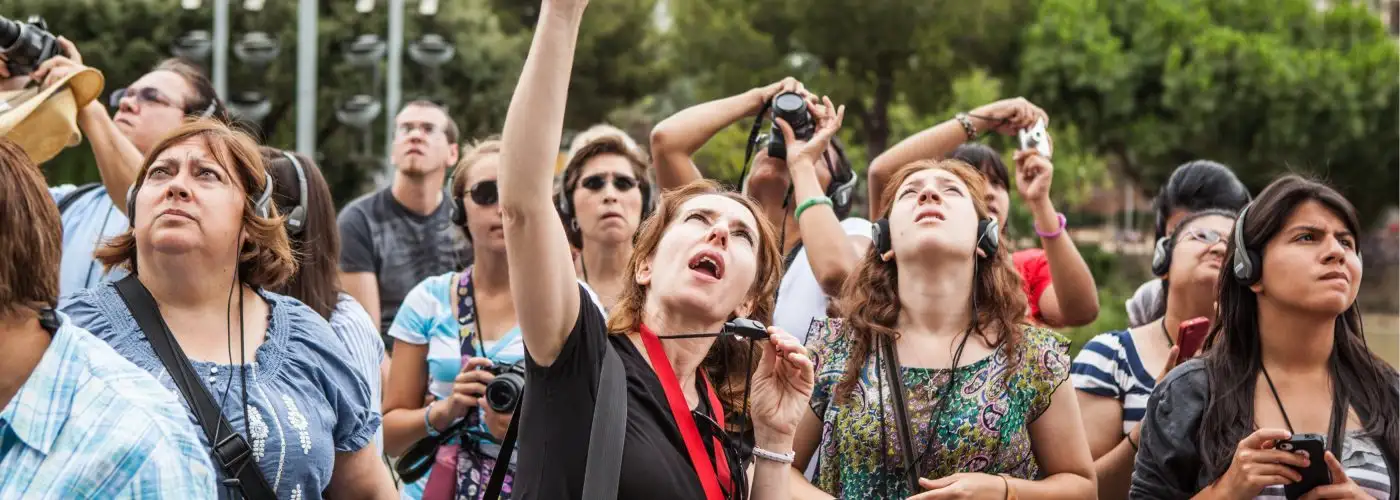
20 Questions to Ask Before Booking a Tour
Ed Hewitt started traveling with his family at the age of 10 and has since visited dozens of countries on six continents. He wrote for IndependentTraveler.com for more than 20 years, producing hundreds of columns on travel and offering his expertise on radio and television. He is now a regular contributor to SmarterTravel.
An avid surfer and rower, Ed has written about and photographed rowing competitions around the world, including the last five Olympic Games.
He's passing his love of travel on to the next generation; his 10-year-old son has flown some 200,000 miles already.
Travel Smarter! Sign up for our free newsletter.
While few truly independent travelers look forward in rapt anticipation to a guided tour, many will admit to a pang of curiosity (or, as the times would have it, FOMO) when they overhear a gifted guide explaining the history and context of a place. Even those who love wandering around on their own have likely experienced the benefits of an intimate small-group tour with a local expert.
If this seems familiar at all, and you are considering hiring a guide on an upcoming trip, here are some questions to ask before booking a tour.
1. Is the tour tailored to beginners or experts?
If you are going on a specialty tour (history, art, cooking) and you already know a lot about the subject, you might be bored silly by information that a non-expert would find fascinating. The reverse also applies; dense art historical information may not appeal to a lay person, for example.
2. Does the tour guide speak throughout, or is it an audio tour with headphones or other media?
Will you be learning from an individual or listening to a taped expert played over headphones? Each has its pros and cons; the former is ideal if you like to ask lots of questions and interact with an expert, while an audio guide allows you to customize the volume and go at your own pace.
3. Who is your guide?
Are the guides locals? Trained historians? Degreed naturalists? Whoever the company could find who needed a job? The personality and knowledge of your tour guide can make all the difference.
4. In what language(s) will the tour be given?
Clearly you will want the tour to be given in a language with which you have a degree of fluency so you won’t miss any important points. If the tour will be given in more than one language, you may want to ask if one language will be considered the main one for the tour. For some tours, translating to several languages can reduce the amount of time and detail the tour guide can give you, and often the information in one language is more cursory than another.
5. Is it all-inclusive, or will you have to pay additional admission fees?
If you will be visiting attractions during the tour, the price of the tour may be completely separate from the admission to those attractions. Be sure you budget for such additions so you don’t miss out on part of the tour.
Another way to ask this: What is not included?
6. Is food provided?
If the tour bridges a mealtime, ask if food is included in the price of the tour. If not, will there be time and opportunity to purchase something, or should you bring your own snacks? If food is available, what options are there? You’ll want to make sure the offerings suit your taste and dietary limitations.
7. What weather can you expect?
If your tour requires you to go up a gondola to a mountaintop covered with mist, or to get on a windy ferry to an island, or to walk for two hours in the summer heat, you’ll want to know ahead of time so you can dress appropriately.
8. How much physical exertion is required?
Unless it is a bus or boat tour, most guided tours require you to walk a bit. Find out how far, whether hills or stairs are involved and what shoes would be most appropriate.
9. Is the tour kid-friendly/handicap-accessible/etc.?
If you or anyone in your group has any special needs, even if they are as simple and common as being a young and restless kid, ask ahead of time if the tour will work well for that person.
10. Where does the tour pick up and drop off?
This seems like an uncomplicated issue, but that’s not always the case. Many tours operate without official offices, so they might meet at street corners, near a famous statue, on the steps of a museum … you get the idea. Take the time to map out how to get there from your lodging, as this is often the most difficult part of taking a tour (go figure).
11. How long is the tour?
You know your own threshold for being led around and told stuff; some may want hours and hours of information, while others want concise overviews before going on their own again.
12. How much time is spent in each place?
Sometimes folks on tours complain of having been rushed through a place they really wanted to see and absorb, while others report having had to linger over something in which they had little interest. If there are specific stops on the tour that are (or are not) important to you, a little research will help make sure you see what you want to see, and not more or less.
13. Are there other tours along the route?
Travelers who prefer to avoid the built-in crowds that tours bring with them can feel even more hemmed in when there are multiple tours all visiting and talking about the same thing at the same time. You can sometimes avoid this by taking your tour at off hours; first thing in the morning often works well.
14. What size is the group?
A tour that’s too big will make you feel like you’re walking around town in a giant swarm of tacky tourists; one that’s too small can feel awkward. (On a visit to Berlin some time ago, I spotted an American couple being led around by a tour guide who was nearly yelling in hopes of attracting the attention of potential additional subscribers. The couple was clearly uncomfortable.) Even if you like the idea of a small tour, find out whether there’s a minimum required number to keep the tour from being canceled.
15. Will you get to break off on your own?
Even on closely guided tours, it’s nice to be able to break off on your own a little bit, whether to linger in front of a painting, dwell on a beautiful view or read a historical placard. Many tours will give you a bunch of information followed by a little bit of time to poke around yourself.
16. Is it safe?
Having lived in New York in the early 80s, I find edgy urban environments fairly comfortable. But when I was considering a favela tour in Rio de Janeiro last year with a 9-year-old in tow, I asked specifically about safety on the tour. The guide’s answer suited me very well, and we enjoyed the tour with no problems.
17. Does pricing change by the week or day?
Many tour companies and guides offer peak and off-peak pricing, depending on when you come; you can save money by looking into your options.
18. What’s the inclement weather policy?
If your tour is outdoors, will you get a refund in foul weather, will you be rescheduled or will you simply be expected to show up and get wet/cold/etc.?
19. What’s the cancellation policy?
You’ll often have to schedule and pay for your tour ahead of time. Before putting any money down, find out what happens if you need to cancel or reschedule.
20. Is the tour well reviewed?
TripAdvisor, Yelp and other similar sites often have reviews of tours and even specific tour guides. Knowing as much as you can about other folks’ experience on a tour can be extremely helpful (and can give you answers to many of the questions posed above).
Have we missed any questions that are important to you? Let us know in the comments!
You May Also Like What Makes a Place Too Touristy? Walking Tours and Trips: What You Need to Know When Do You Need a Tour Guide? 8 Things Not to Bring Home from a Trip
Editor’s Note: IndependentTraveler.com is published by The Independent Traveler, Inc., a subsidiary of TripAdvisor, Inc.
We hand-pick everything we recommend and select items through testing and reviews. Some products are sent to us free of charge with no incentive to offer a favorable review. We offer our unbiased opinions and do not accept compensation to review products. All items are in stock and prices are accurate at the time of publication. If you buy something through our links, we may earn a commission.
Top Fares From

Don't see a fare you like? View all flight deals from your city.
Today's top travel deals.
Brought to you by ShermansTravel
Porto to Lisbon: 7-Nt, Small-Group Portugal...
Indus Travels

Greenland: Luxe, All-Incl. 11-Nt Exploration Small-Ship...
Swan Hellenic
Ohio: Daily Car Rentals from Cincinnati

Trending on SmarterTravel

Travelling Without a Passport

Everything Your Tour Guide Wants You to Know Before You Travel

So you’ve booked your trip, taken leave from work and saving hard for your next trip of a lifetime. It’s around this time you’ll start to have many questions about what happens on tour.
Travel to: Europe
During my nine years on the road as a tour guide in Europe, the most important part of any adventure is being prepared, and I have come to believe that having realistic expectations about your trip is one of the most important things you can do to ensure an amazing experience. But how do you know what to expect when it’s your first time on tour?
To help keep your mind at ease, these are the most popular questions that almost every single passenger would ask me on day one of every tour. So, to save you the concern or queries, this is your complete guide featuring everything your tour guide wants you to know before you travel.
Are you ready for a touring adventure of a lifetime?

What happens if I miss the coach?
People who are generally punctual should never be concerned about missing the coach and it’s important to understand that passengers are never left behind, but sometimes a passenger misses the coach. The truth is, the needs of the many, outweigh the needs of the few and if you’re a punctual person, I’m sure you agree.
See Also: Group Tours Vs Solo Travel: Which Travel Style is For You?
If it’s just a trip back to the hotel, simply make your own way via public transit or taxi. If neither are available, ask for help from a local. In the very worst case if you miss a journey from one city to the next, ask the hotel reception for assistance as to how to make your way to meet with the group and contact your tour guide or the tour company to let them know your plans – they’ll be worried about you!
Tip: Set your watch forward by 5 or 10 minutes – it’s much harder to be late this way!
Will I have my tour guide’s phone number?
Some tour companies have a policy that their tour guide must provide a phone number for their guests, but not all of them do. Sometimes, it is also up to the individual tour guide. What we can recommend, is you keep your hotel list with you which is usually provided with your travel documents, or upon joining the tour.
The hotel’s phone number is the best way to get in touch with your tour guide if you find yourself stuck, or you can also call the operator’s emergency phone number or your booking agent in case of emergency.
View this post on Instagram Anyone else with this is what their #Monday looked like? 📸 from @caitlinrussellx A post shared by TourRadar (@tourradar) on Sep 25, 2017 at 10:51am PDT
How do I know where to meet my group at the start of my tour?
This information is shared either on your tour voucher or trip notes. It’s usually in the hotel lobby at 9 am, but if you don’t have this information in your tour documentation, ask at reception upon arrival as your tour guide will usually post a notice in the foyer or leave a note for you at the reception. Also, look out for other travellers also wandering around looking kind of lost because they’re probably going to be joining your tour.
See Also: 5 Tours You Need to Take in Your 20s
When should I arrive in the city where my tour starts?
Some tours begin in the morning, but many will start in the evening. If the tour begins in the morning, you should arrive the day before and stay overnight in, or nearby the tour hotel. If your tour begins in the evening, you can comfortably arrive on the same day – just check the itinerary first.
See Also: How to Save Money on Food at the Airport in Europe
It’s best to look for a flight which arrives around midday, as by the time you get to the hotel, you should be able to check in and most hotels worldwide, will allow check-in around 2 pm. If you arrive earlier and want to explore the city on your own, most hotels will allow their guests to store luggage at the hotel before check-in. If in doubt, just ask.
View this post on Instagram This is our kind of #lunch 👌 Photo from @adventurer.ann A post shared by TourRadar (@tourradar) on Aug 24, 2017 at 10:26am PDT
How will I find my way around in my free time? What if I get lost?
Navigating a foreign city on your own can be daunting, but often results in some of your best travel stories. You have many options to find your way around, including city maps (available at most hotel receptions and tourist info centres for free if not provided by your tour guide), guidebooks, metro maps (found in metro stations) and good old Google maps.
If you don’t have data on your phone, you’ll be happy to know many destinations offer numerous cafes, bars and other public spaces with free Wi-Fi where you can download an offline map. It’s also a good trick to ‘star’ or favourite your hotel, or the coach meeting point and time on your map wither it’s digital, or on paper.
Also, ask for directions. Locals are often very friendly, so even if you don’t speak the language and they don’t speak yours, pointing to a place on the map is a universal language. If you speak English, you’ll probably be pleasantly surprised as to how many people in popular destinations are able to speak a little too if you need it. Simply ask your waiter or a shopkeeper and you’ll be on your way in no time!
Something people also tend to forget, is there are taxis everywhere. If you need to get to the meeting point in a hurry and it’s a bit too far to walk, or you want to head back to the hotel and have had enough of public transit, jump in a taxi and show the driver your map.
View this post on Instagram Some serious #MondayMotivation for everyone today✌️ photo from @_samfrith A post shared by TourRadar (@tourradar) on Jun 19, 2017 at 7:37am PDT
What about laundry?
Depending on the length of your trip, I would always recommend avoiding needing to do laundry while on tour. For small, light items, you might like to hand-wash them during a 2 night stop, or perhaps your hotel has a laundry service, which although usually expensive, is a 24-hour turn-around and very convenient.
Your tour guide may be able to direct you to a laundromat if there is one nearby, but who wants to spend their vacation doing laundry?
See Also: The Biggest Misconceptions About Group Tours
Should I bring cash or cards?
Cash machines are easily found in most locations but check first, what fees your bank is charging you for withdrawals or purchases. It’s always a good idea to have some cash on you, but less is better! Best to check out travel card options where you can withdraw when you want in the local currency
What sort of people will be on the trip?
Lovers of travel, just like you! Some tour groups are open age, others are restricted, for example to youth travel aged 18-39 or exclusively for families with children. Tours are sold globally, so you’ll usually have a good mix of nationalities on your tour, but you’ve likely booked an English language tour, so you’ll probably find the majority of your group come from countries where English is the native language. Tours are popular with solo travellers, but also with groups of friends and also couples.
View this post on Instagram Tag a friend you want to #explore with 🗺 Photo from @lizziepeirce A post shared by TourRadar (@tourradar) on Aug 29, 2017 at 12:32pm PDT
What if I have particular dietary requirements?
Communication is the key when it comes to anything you need while on tour and dietary requirements are no exception. Your booking agent will communicate to the tour operator, any information you’ve outlined at the time of booking so your tour guide should already be aware of your request.
Nonetheless, it’s always best to touch base again with your tour guide on day one when you join the tour. Requirements such as gluten-free, no red meat and vegan are all very common requests and can be easily catered for in most destinations. You can download multi-lingual cards on the internet which you print and keep in your wallet in order to overcome language barriers when you are eating at your restaurant of choice on free nights.
It’s important to note though, dietary requirements are exactly that – restrictions on your diet for health, or religious reasons, covering intolerances, allergies and omissions. Tour guides are generally unable to cater for simple food dislikes.
What does my tour guide do?
In many destinations these days, in order to walk around a city, explaining monuments to a group, you must be licensed for that particular destination. Many tour operators have a tour guide and driver who facilitate the tour, but your tour guide is different from a local guide. Knowledge and experience will vary from one tour guide to the next, but generally speaking, your tour guide is there to coordinate your tour and to help you enjoy your trip.
Do I need to advise if I have a medical condition?
While your health is somewhat of a personal issue, it’s important your tour guide is aware of any pre-existing medical conditions that might affect your trip. This puts them in the best situation to offer advice or direction should you need medical assistance while on tour, or seek out help in case of emergency.
View this post on Instagram What would your #Pisa photo look like? This one is from @travelbloggeres 🙌 A post shared by TourRadar (@tourradar) on May 16, 2017 at 9:09am PDT
How much time will I spend on the coach?
Naturally, this depends on your itinerary. If you’re curious, you can search the distances on Google maps before your trip which will ensure you’re closer to accurate expectations, but the mere distance you travel is not the only thing to consider when estimating driving times. How long you’re on the coach will also depend on the types of roads you’re on (highways or B roads) and unforeseen circumstances like poor weather or traffic.
Always overestimate when setting your expectations for drive times! In general though, on a typical driving day, you’ll set off from the hotel around 8 am or 9 am and arrive at your destination around 5 pm to check into your hotel. You’ll stop en route for comfort stops every 2-4 hours for a bathroom or food break, and on some days, stop to visit points of interest along the way too.
View this post on Instagram Weekend #goals right here 😎✌️ 📸 from @heyitsjessvalentine #gotouring A post shared by TourRadar (@tourradar) on Apr 27, 2018 at 1:22pm PDT
Is there a toilet on the coach?
Larger coaches are usually equipped with a toilet, but they are generally not the most pleasant of places to go! Your tour driver and tour guide will be making regular stops, so you can always ask how far you are from the next break before you make any decisions!
Are my belongings safe on the coach?
Tour drivers are very proud people and a good driver treats his coach like one of his own offspring. While coaches are always locked while unattended, just like cars, they can be broken into, unfortunately, so it’s not recommended you leave valuables in there for extended periods. If you do choose to do so, you do at your own risk.
View this post on Instagram Guy meets #Gaudi – 📸 from @delafuente___ A post shared by TourRadar (@tourradar) on Jan 8, 2018 at 5:58pm PST
What’s included on my tour?
This information is outlined in your trip notes and also online. It’s important you’re familiar with the inclusions so as not to be surprised while on your tour. Typically, on many group tours, all accommodation and tour transport is included, along with some sightseeing, plus your breakfasts and some evening meals, but lunches are rarely included.
Premium tours may also include certain experiences like a cooking class or performance, but no tour is the same as the next, so it’s always best to familiarise yourself with your particular tour inclusions before setting off. Museum entry fees, shopping, food and drink, plus things like taxi fares, should you choose to do your own thing in a city, will be at your own expense.
I am travelling solo and booked twin share, who will I share my room with?
Most tour companies who offer for solo travellers to be paired with another traveller will pair you with someone of the same gender. The pairing of solo travellers is usually done at random, so remember, communication is important. If for any reason, you are unhappy with your roommate, the best thing to do is to speak confidently with your tour guide. There may or may not be a possibility to swap with someone else, or you may be given the option to pay for a solo room upgrade where available.
It’s important to note that some tours which offer accommodation in multi-bed dorm rooms will offer only mixed gender accommodation.
What should I pack?
Aside from the essentials, like comfortable walking shoes and suitable clothes for the season you’re travelling in, you might also want to pack some smart casual evening wear. My absolute essentials are a phone, phone charger, adapter and wallet and I always double and triple check for my passport. It’s not a bad idea to photocopy your passport and leave a copy in your suitcase, and it’s also wise to have duplicate bank cards, which you should also leave in your suitcase.
See Also: The Perfect Italy Packing List For Summer
It’s also a good idea to wear a watch as you’ll have many meeting times on a tour and also a pen for marking your map. Remember too, that many things like clothes and toiletries can be bought in-destination if you’ve forgotten them, (many better hotels also offer basic toiletries at reception), but if there’s anything you need to buy, your tour guide can tell you where to find them.
Tip: When packing, less is more! Your luggage will be easier to manoeuvre and you’ll have more room for things you’ve bought.
View this post on Instagram When it's finally Friday and you can start planning your next escape! 🙌 – 📸 from @belenhostalet A post shared by TourRadar (@tourradar) on Sep 22, 2017 at 4:00am PDT
Do I have to tip my tour guide and driver?
A gratuity or tip, is, by definition, your choice as a traveller and while unusual in some cultures, it’s common practice in many cultures and within the tourism world. Usually, the tipping etiquette for your particular tour will be covered in your tour documentation, but it’s always up to you. Giving a tip is an opportunity to express gratitude to your tour guide and driver for a job well done.
View this post on Instagram Anyone else wish they were in #Greece right now? – 📸 from @wander_pip A post shared by TourRadar (@tourradar) on Oct 4, 2017 at 1:55pm PDT
A final word: as told by a tour guide
Travel truly is a delight for the senses. Taking in new sights, sounds, foreign cultures and foods day in, day out is always going to be a step away from your day to day back home and often makes for a good night sleep at the end of the day. Take the time to slow down while on tour, to stop for a coffee and watch the world go by and to take a breather. Drink water too, active people need nourishment!
Most of all, be open-minded and considerate of others. It’s impossible that everything always goes to plan, but this is the joy of not only travel but life too and where the best stories come from! Be patient and teach yourself how to say ‘oh well’ when things are not within your control. After all, holidays are for relaxing!

Finally settled down in Vienna after 9 years of leading tours in Europe, Leona first joined TourRadar in 2016. She speaks four languages and enjoys cooking authentic traditional recipes, walking in the hills around Vienna and arranging beer coasters so they're all facing the same way.
Related Articles
- Food & Drink
Your Guide to Amsterdam’s Secret Bars and Speakeasies
One of the most popular cities in Europe, Amsterdam has no...
- Tips & Tricks
Best Destinations for People with Disabilities
The world and its wonders should be available to one and...
The Seven Most Scenic Train Rides in Europe
Forget planes, buses or automobiles: 2024 is the year of the...
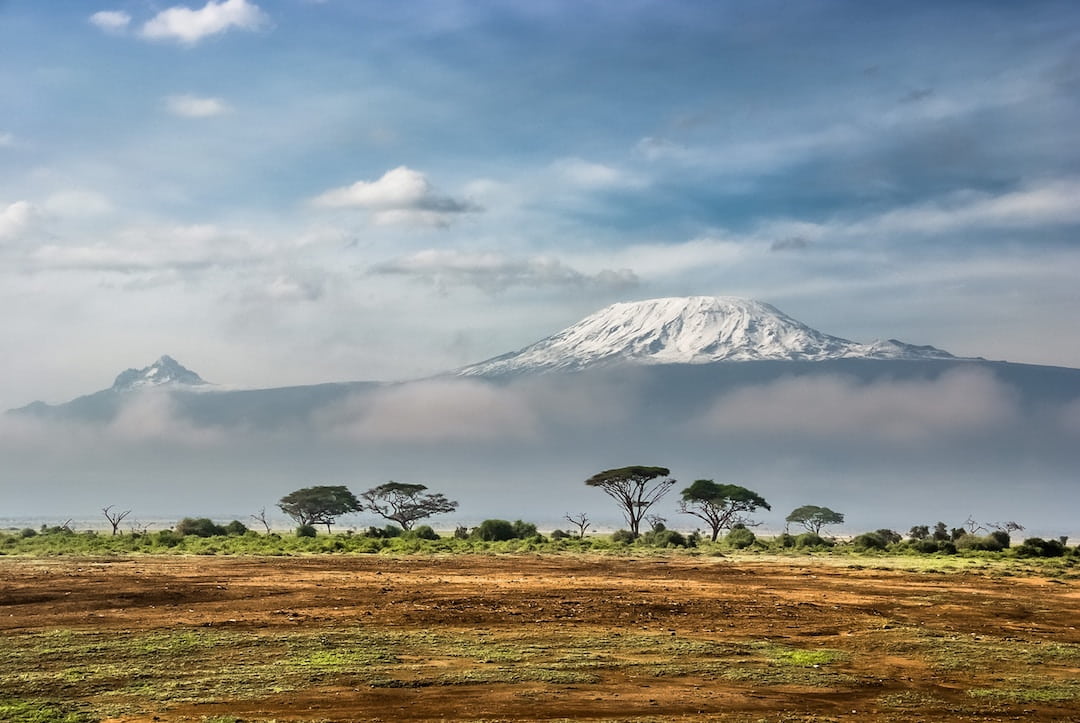
The Essential Kilimanjaro Packing List
Get unlimited access to the world's best travel stories. subscribe now., privacy overview.
2018 Primetime Emmy & James Beard Award Winner
R&K Insider
Join our newsletter to get exclusives on where our correspondents travel, what they eat, where they stay. Free to sign up.
A History of Moscow in 13 Dishes
Featured city guides.
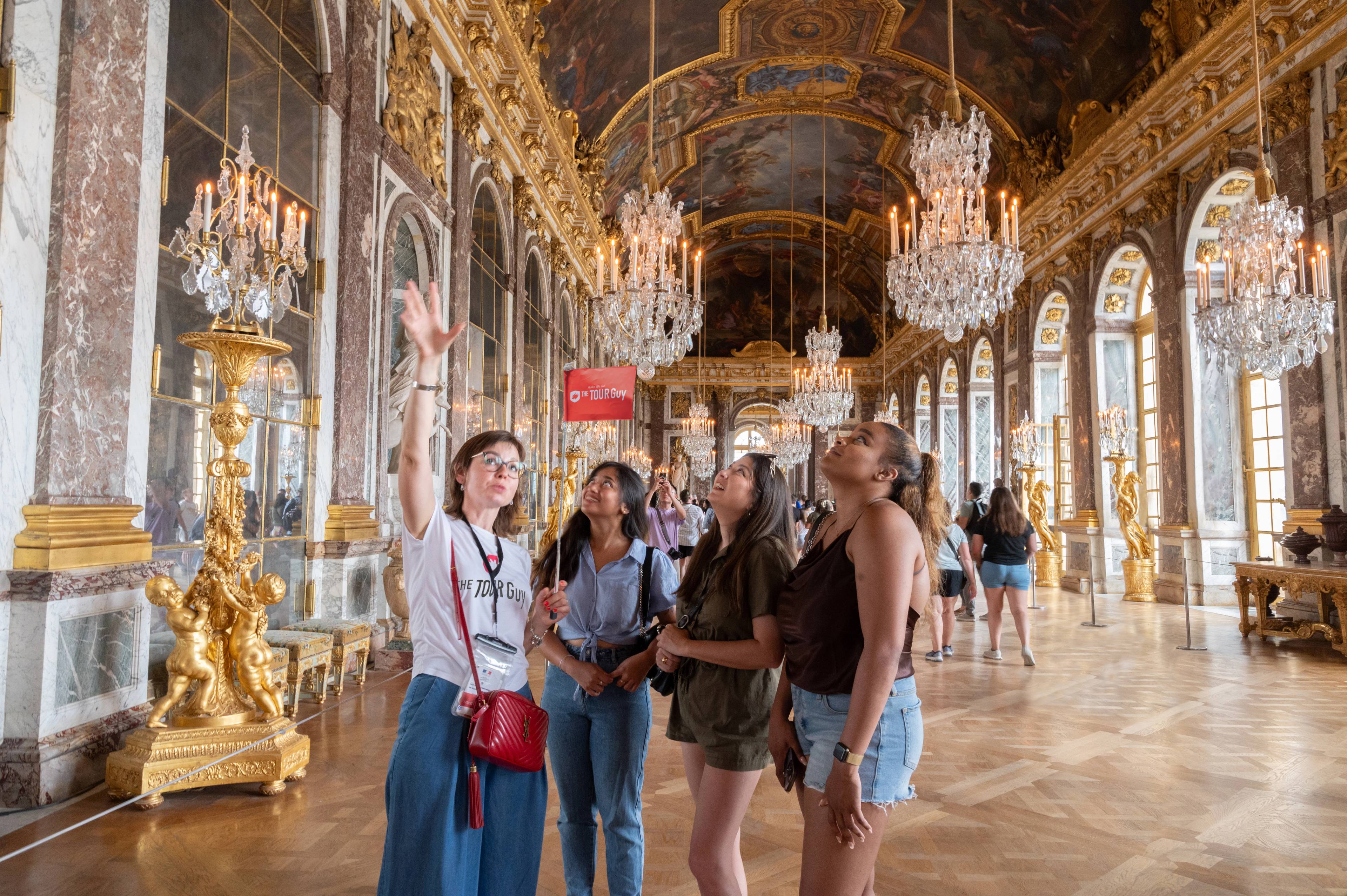
We have stories to tell.
OUR BEST SELLING TOURS AT A GLANCE
Most Popular Tours
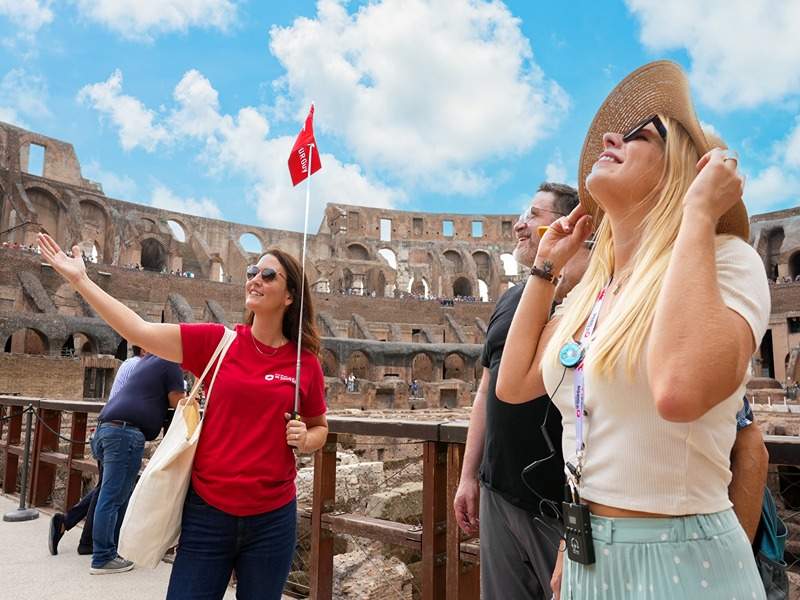
Special Access Colosseum Arena Floor Tour through the Gladiator's Gate
Step through Gladiator's Gate and onto the Colosseum Arena Floor on this small group Rome tour. With skip-the-line tickets, Roman Forum, and Palatine Hill.
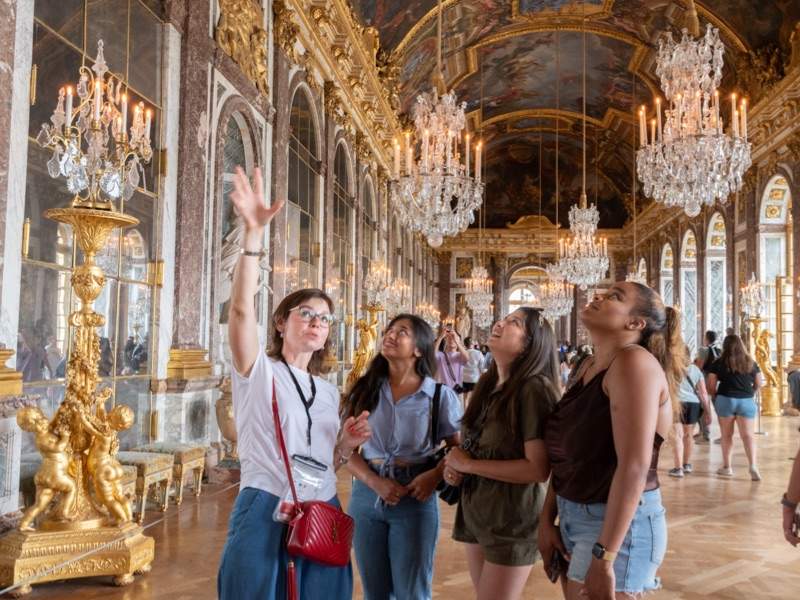
Secrets of the Louvre Museum Tour with Mona Lisa
Skip the line for an expert guided tour of the Paris Louvre museum's famous art. Includes Mona Lisa, Venus de Milo, France’s Crown Jewels, and so much more

Experience the world like a local
Top Destinations
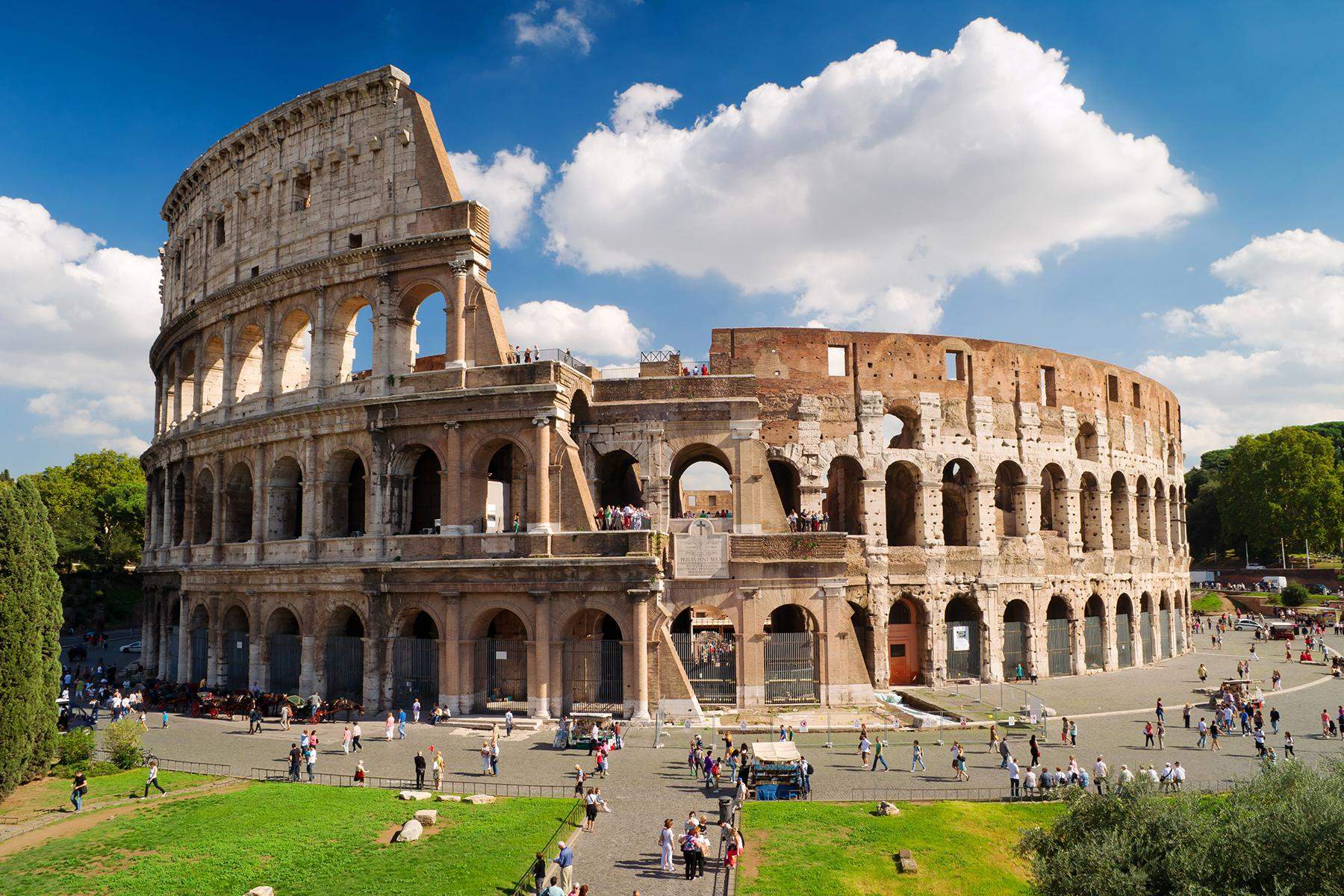
Things you must see in your life
Top Attractions

Privileged Entrance Colosseum Tour with Roman Forum & Palatine Hill
Skip the line and see the Colosseum, Roman Forum, and Palatine hill in just a few hours! This small-group guided tour shows you the best of ancient Rome.
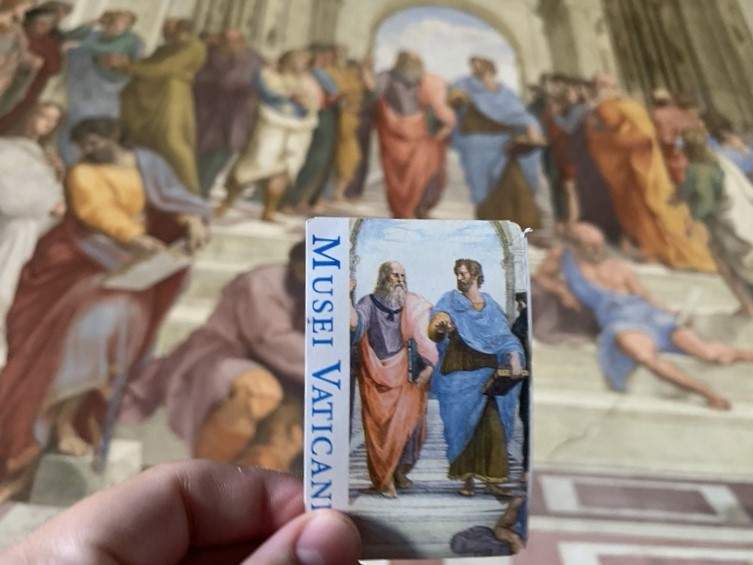
Unforgettable Rome Day Trip to Pompeii and Sorrento
Tour volcano ruins in Pompeii with an expert guide and spend the afternoon in the charming coastal town of Sorrento. Day trip from Rome with small group.
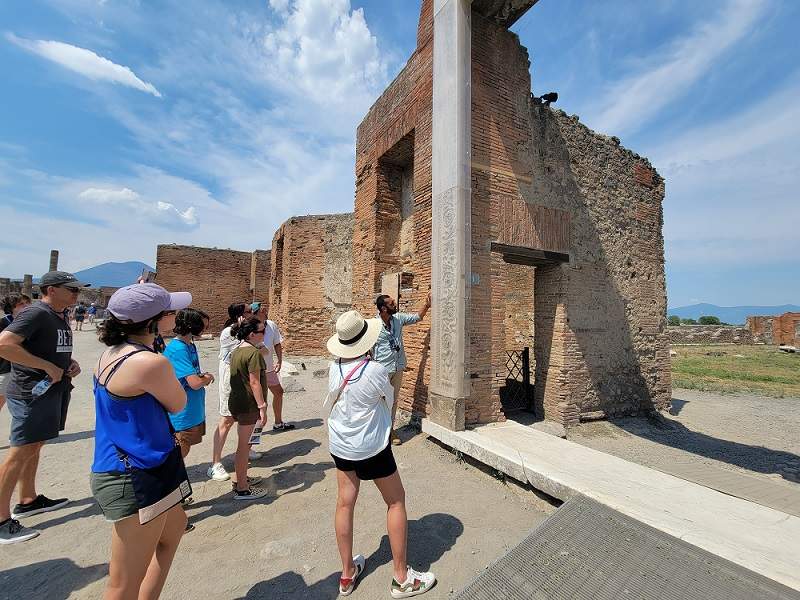
Skip the Line Pompeii Ruins Guided Tour
Join an expert archaeologist guide for a fascinating small group guided walking tour of Pompeii, Italy. With skip-the-line tickets
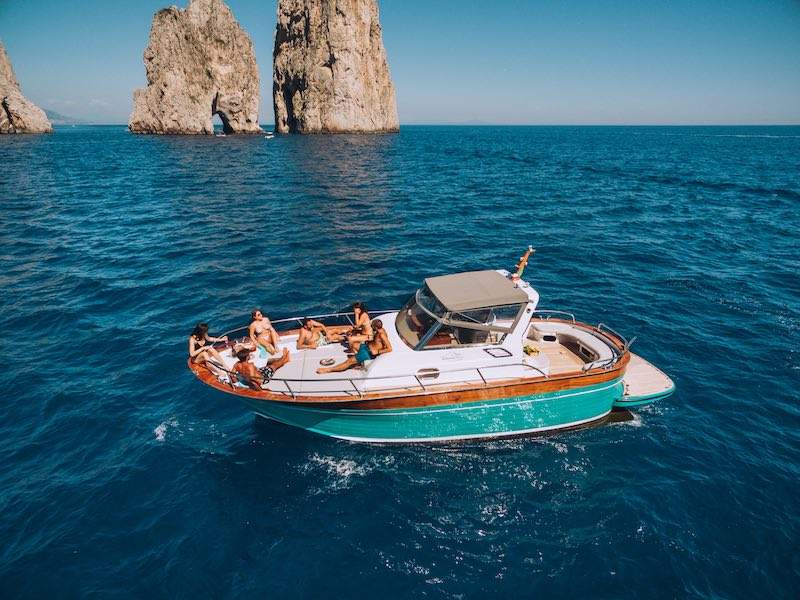
Capri Full Day Tour from Sorrento by Luxury Boat
Take a luxury boat tour from Sorrento to explore the stunning island of Capri, swim and snorkel on the Amalfi Coast, and visit the incredible Blue Grotto
How we create a unique experience
Find something people love.
From famous attractions to lesser known hidden gems.
Privileged Access
Visit a restricted area, visit at night, before opening. We get you where others can't.
Certified Guides
Handpicked guides who are extremely qualified & passionate about history and storytelling.
Dedicated Customer Service
Bookings, changes, or even just advice; we are like friends, always there for you.
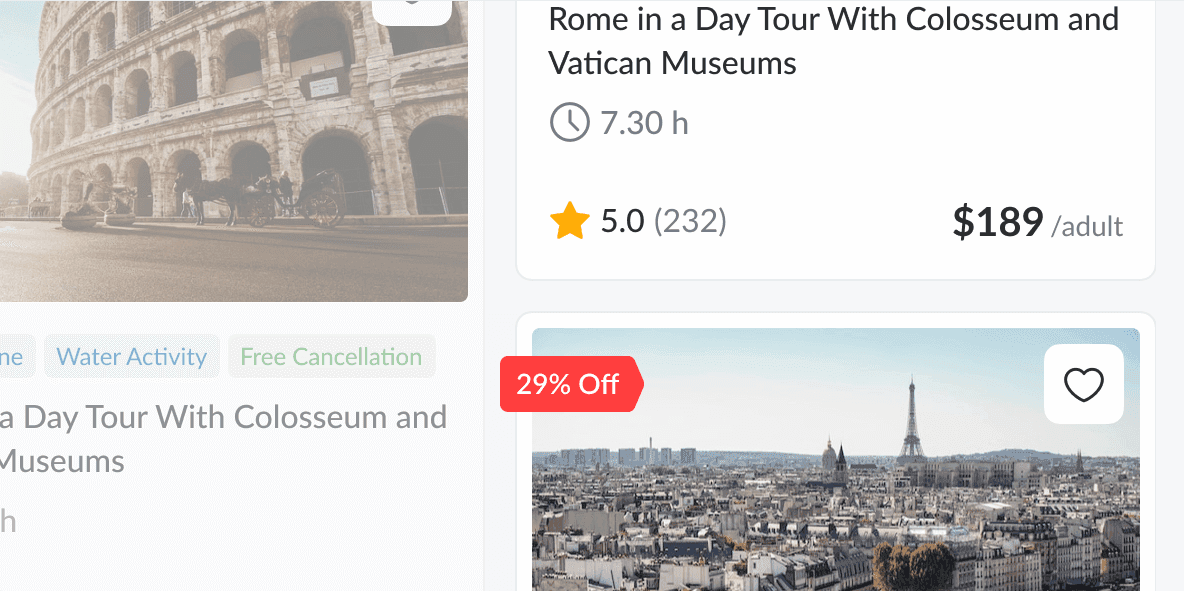
Subscribe for New tours
All our destinations.

7 things that might surprise you about the Chicago Architecture Boat Tour
T here are plenty of ways to take in the sights, sounds (and smells) of Chicago, but you don't necessarily have to be on land to do that.
And you don't have to be a tourist, either.
In fact, one of the most beloved ways — among locals and visitors alike — to experience city is by journeying across the Chicago River and Lake Michigan while a tour guide talks about buildings and regales you on the untold story of Mrs. O'Leary's cow.
In other words: a Chicago Architecture Boat Tour.
"As you're going up and down the Chicago River and on Lake Michigan, you're seeing the city’s evolving architecture, which is changing every year" said Andrew Sargis, director of sales and marketing for Wendella Tours and Cruises .
Wendella, billed as Chicago's "original" architecture tour, in 1935 gave its first architecture tour of the city from a wooden diesel yacht out on Navy Pier, Sargis said. Now, upwards of 20 architecture tours are offered daily, with more on the weekends. On average, Wendella tours see roughly 100,000 passengers each month over the summer, Sargis said.
And though the majority of guests on any given Wendella architecture tour are tourists, Sargis said, locals take them, too.
MORE: Even Chicagoans can't get enough of this tourist attraction: ‘It's about the only touristy thing I do'
"I was surprised when I first started, we get a lot of repeat locals," Bobby Scheffle, a Wendella tour guide told NBC Chicago. "And always there's a lot of local people that come on when they have guests visiting them in town. They like to show off the city this way."
But there's something else about the experience that makes it so very Chicago.
"I think it is really unique to experience the city from a boat on a river, because we think about other big cities in the United States -- there aren't many that have a river that go right through downtown," Scheffle said. "You feel like you're in the city, you hear the noise, and you see the buildings and all that."
Whether you're taking the ride for the first time or the 50th, bringing out-of-town guests out for a memorable activity or just itching to be a tourist in your own city, here are seven things to know about the Chicago Architecture Boat Tour.
Will weather stop a tour from running?
Wendella's architecture tours run year-round, Sargis said, although "weather is a factor."
Weather events like ice on the river or significant snowfall can impact operations, Sargis said, but they typically don't, since the Chicago River -- a federal waterway -- must remain navigable year-round.
While Wendella's boats do have climate-controlled indoor lounges, tours during the winter may run at limited times. But rain, snow, extreme heat or wind, unflappable Chicagoans still show up.
"We went on drizzly day a few years ago," Kathy Rambo wrote on NBC Chicago's Facebook page. "There were only about 10 of us on the boat!
And most often, the tour will run — rain or shine — so don't hesitate to bring a raincoat.
"I have certainly [given tours] under thunderstorms and downpours, and I've gotten drenched sometimes," Scheffle said. "I've never had a tour get canceled because no one bought a ticket. There's always someone wanting to come out here in the rain or the cold."
What's the best time of year (or day) to go?
It depends on when exactly your favorite time of the year is, and what you're hoping to see.
For Sargis, it's late summer. "There's this point of time in September when the weather is beautiful, but there's not that summer rush."
There are other times that Chicagoans may want to consider, too.
"St. Patrick's Day Celebration when they dye the river, and any Wednesday or Saturday night [over the summer], watching the fireworks over Lake Michigan , especially if you're local" Sargis said.
During the summer months, Wendella's tours run start as early as 9 a.m., with the day's final tour not ending until 10 p.m. or 11 p.m., Scheffle said, "so if you want to come for a ride to see the city lights, you can come late, and it's also beautiful, just a little more difficult to see the colors on the buildings if that's what you want to see."
Laura Pubins, who lives in a suburb outside of Chicago, agrees.
"My favorite one was when we were on a boat at sunset," Pubins wrote to NBC Chicago on Facebook. "It was an awesome new view of the city."
What's the most photogenic spot on the tour?
For Sargis, it's "anything out on Lake Michigan," with the skyline in the background.
On the river though, there's one moment that captures the city best, Scheffle said, no matter what time of day you're taking the trip.
"The best place to take a photo on the 90-minute river tour is when we come up the south branch from Chinatown," Scheffle said. "That's the best place because you get the whole skyline from the south. It's really beautiful."
For locals though, it may not be what you're looking at, so much as how you're looking at it.
"You're looking at [the city] from underneath," said Chicago resident Nick Pappas, 55, who recently found himself on a 90-minute river tour. "It's just a different perspective on the river that you don't get on the street level. As amazing as that sounds, you're only, like, 20 feet down, but it gives you a whole different perspective."
What does the training for a tour guide look like?
According to Sargis, all Wendella tour guides are trained in-house -- and the spots are competitive.
"There's high demand," Sargis said, of the position. "There are more people that want to be tour guides than space available. It's certainly a popular job, and people want to do it." While the tour guide of any given architecture tour isn't made public, many people do request certain ones for private events, Sargis said.
For the tours, there's a general script, with highlights that must be mentioned, Sargis said. But improvisation, along with sharing personal history is encouraged, too.
"All of the tour guides have their own experience in the city, and will add parts of their history in it," Sargis said. "We have a tour guide that is a retired police officer, and he will interject anecdotes form his career. We have a tour guide that's a Vietnam War Veteran, and when we go by the Vietnam War Memorial, he will always discuss the importance of it to him."
For Scheffle, the training included joining multiple tours a week for two weeks and flashcards.
"For a while, I, just drove Uber and Lyft," Scheffle said. "And then, I remembered that I really liked Chicago. I like learning fun facts about it. And there are people in the city that have that as a job -- to tell people fun facts about Chicago and I started looking into tourism jobs in the city."
What's the most common question tour guides get?
Believe it or not, it's not always about The Great Chicago Fire , or Mrs. O'Leary and her cow, at least on Scheffle's tours.
"My favorite thing on the tour that happens is probably when little kids ask questions," Scheffle said. "The common question that a kid will ask, because I talk about the tallest building, second tallest building, third tallest building, a lot of times a kid will ask what's the shortest building in Chicago? Which I don't have a good answer for."
Are you supposed to tip your guide?
"It's up to the discretion of the client," Sargis said. "I would say a lot of our passengers do tip our tour guides."
What's the absolute best part of the tour?
Sure the tour is photogenic, and the city's history is fascinating. And though some may go on the tour to find out what buildings are new, others prefer to think about the old.
"My favorite building to talk about is probably the Board of Trade building," Scheffle said. "Just because I remember walking by it much younger and always, I remember, really being impressed by it, thinking was such a cool big city building."
For a local on the tour, the memories are nice. But a day out on the water in Chicago is just hard to beat.
"It's great. I don't have to work," said Pappas, who has lived in the city for 55 years. "Every time, it's a little treat to go down the river."
Video editors Ivonne Ramirez and DS Shin produced and created the video for this story.
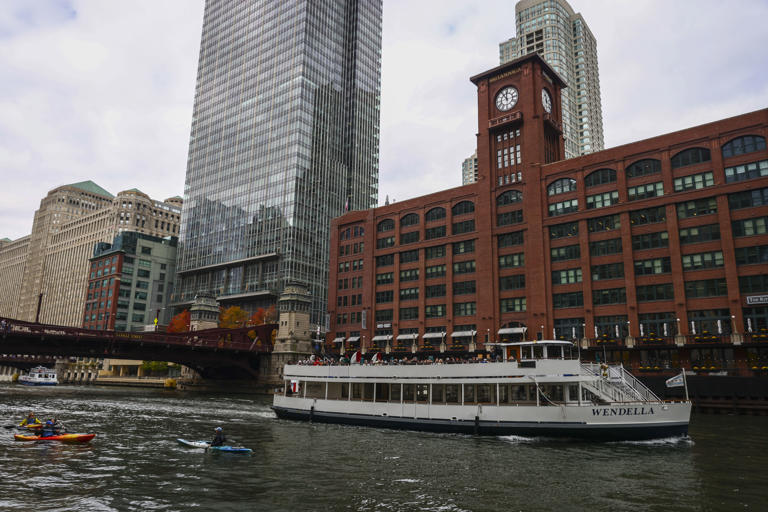
Salem tour guides could soon be required to pay licensing fees
The proposed fee, paid annually, would cost tour guides with groups of 10 or less $150, groups of 11 to 29 $250, and groups of 30 to 40 $350, by jericho tran • published april 18, 2024 • updated on april 18, 2024 at 8:10 pm.
While tourism can be a real treat in Salem , Massachusetts, the city says the costs are tricky.
“Costs are starting to get close to a point where they’ll exceed the direct revenues the city brings in from things like parking and license fees,” said Salem Mayor Dominick Pangallo.
The city can draw tens of thousands of visitors a day during the busy Halloween season . With more licensed tour guides in the city as the area continues to grow in popularity, a change in license fees was proposed during the city council meeting last week.
According to a letter from the mayor to city councilors, there are 175 licensed tour guides in the city, up from 28 in 2006 when the original ordinance went into effect.
Get Boston local news, weather forecasts, lifestyle and entertainment stories to your inbox. Sign up for NBC Boston’s newsletters.
Tour guides who spoke with NBC10 Boston say the proposal came as a surprise.
“We found out about this on a Wednesday night and the city council meeting was on a Thursday and so we have less than 24 hours to put our ducks in a row,” said Jeffrey Lilley, a tour guide at Salem Uncovered.
The proposed fee, paid annually, would cost tour guides with groups of 10 or less $150, groups of 11 to 29 $250, and groups of 30 to 40 $350. It also includes a discount of $50 for guides who don't use any form of amplification. It also increases fees for violations.
“This year, my license cost me $10. Next year they want me to pay $350. I employ a few guides in the season so that would be $1,400 that I would then I have to spend on guide fees,” said Lilley.
While Pangallo says this should only be the difference of adding a few extra cents to ticket prices, tour guides disagree.
“To say it's just a few cents on a ticket well then that would mean me imposing on a ticket which is technically not legal.”
If passed in the public hearing, the proposal would go into effect as soon as January 2025.
“Hopefully we come out with a resolution that fits everyone's needs, and is something we can shoulder and something that's gonna benefit the city,” said Lilley.
More from Salem

Man charged in pipe bombing of Satanic Temple in Salem

Salem weighs ‘no camping' order to ban homeless people's tents
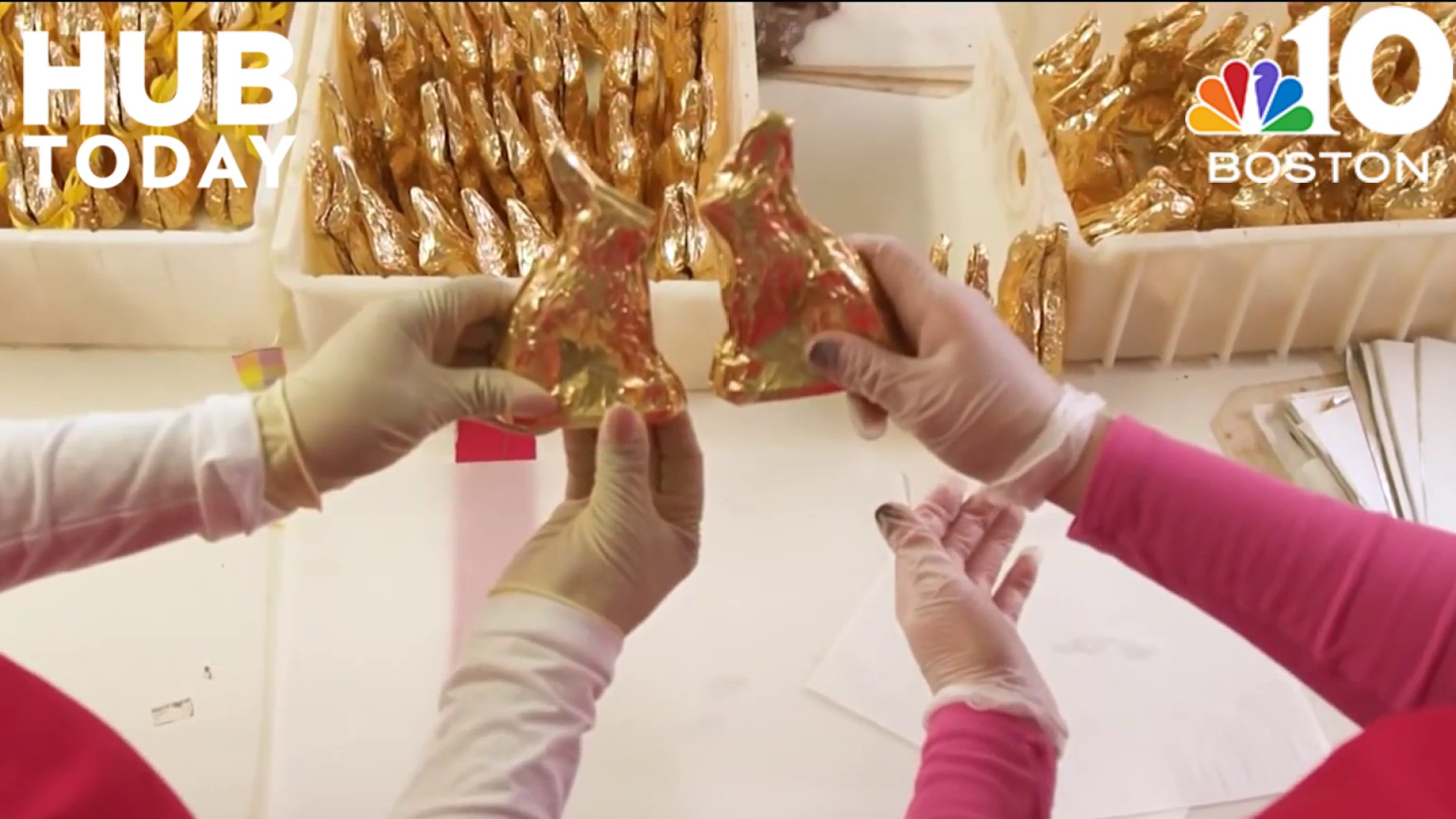
Where's Hannah? Exploring the Harbor Sweets Factory in Salem
This article tagged under:.
- Share full article
Advertisement
Supported by
Critic’s Notebook
The Biden Guide to Dressing Younger
Though much has been made of the president’s age, his tailoring tells another story. There are lessons to be learned here.

By Guy Trebay
Guy Trebay has been tracking the evolution of Oval Office style for The Times since the Clinton administration and, personally. since that of John F. Kennedy.
Joe Biden is a dapper guy. He always has been. When he turned up decades ago for a first date with the woman who would become his wife and the country’s first lady, her gut reaction was, “This is never going to work, not in a million years.”
Dressed in a sports coat and loafers, Joe Biden was too dapper for someone who had previously gone out with men in T-shirts and clogs.
They worked it out. And the future president stuck to his style. It was one that sometimes skewed Gatsby, for which in 1974 Washingtonian magazine noted his penchant for pinstripe suits and tasseled loafers when citing him as one of the best dressed men in the Senate. It was one that was sometimes too high-toned for its setting. In 1979, Mr. Biden, then a second-term senator, exuded confidence in a “tailored suit and expensive tie” for a campus speech at the University of Alabama, The New Yorker later reported .
It was one that, on occasion, even threatened to upstage the boss. Yes, it must have been flattering to be praised by The Chicago Tribune as the “best-dressed guy” at Bill Clinton’s 2000 State of the Union address. Politically, however, it was not the best look.
Still, dapper cred has stood President Biden in good stead. When Donald J. Trump, now 77, derides his 81-year-old opponent as doddering Uncle Joe, he is missing a point any tailor would be happy to clarify. There is getting old, and there is looking old. To avoid having your clothes add unnecessary years, make style your friend.
“Joe Biden’s style is timeless and doesn’t have any expiration date,” the designer Todd Snyder said recently. If you think that is accidental, you are not paying attention.
Setting aside the occasional solecism (wearing a necktie and not a bow tie with his dinner jacket at the state dinner for Prime Minister Fumio Kishida of Japan), President Biden is consistently the “sartorially elegant” politician Tom Ford once praised in a British GQ interview . More tellingly, he exemplifies how, in politics as in other pursuits, dressing effectively and well requires know-how and a willingness to take a good, hard look in the mirror.
“Bodies change as we age,” said Keith Dorsett, the district manager of Heimie’s Haberdashery, a venerable men’s clothier in St. Paul, Minn. All but the fittest of men are bound to experience a degree of muscle loss across chest and shoulders as they age, along with a loss of flesh across the back and postural shifts. The scale may insist that you weigh just what you did at 30. It cannot account for how some of those pounds turned into a muffin top.
“Think of how seldom we look in the mirror and take a real inventory,” Mr. Dorsett said. “At all times, but particularly with aging, fit is the No. 1 thing.”
That view is endorsed by experts like Giovanni Bianchi, the director of the men’s wear label L.B.M. 1911, maker of what Esquire once called the perfect blazer. “Age is not the defining element of an ability to dress effectively,” Mr. Bianchi said by email from his home in Mantua, Italy. “Age is only the determining factor if you make the wrong choices.”
Alas, strategizing for the dynamics of an aging body requires skills few of us innately possess. Since we are no longer in a world where haberdasheries exist in abundance, what we are left with is the sad tells of aging: a sport coat with scarecrow shoulders, a sleeve drooping past the wrist, trouser hems puddling around one’s shoes.
That is, unless we are President Joe Biden, who clearly retained the lessons picked up at clothiers like Brooks Brothers and Jos. A. Bank (and, presumably, far fancier establishments, though the White House, through a spokesman, demurred when asked which ones). Continuing to refine them even as he occupies the highest office, Mr. Biden gives offhand master classes on the wardrobe tricks that distract from the inevitable predations of time.
“With an older body, you can do what Biden does and put a little structure in the shoulder while keeping it soft, so it’s somewhere between a British and an Italian cut,” Mr. Dorsett said. You can create subtle shaping in the back lining of a jacket where inevitably there is “less meat on the bone as you age.”
You can stick to white shirts with a slightly heightened and moderately spread collar, its points nestled neatly under the lapel. The dual effect both minimizes wattles and creates a tidy frame for the face. You can elect to wear solid color ties and fasten them with four-in-hand or half-Windsor knots that never look like an angry fist at the throat.
You can handily avoid the worst pitfalls of “dressing old,” Mr. Dorsett said, by thinking of the body as defined by its hinges: hips, elbows, ankles, wrists and knees. Have sleeves hemmed at the break of the wrist, he suggested, to avoid the telltale grandpa droop. Trim the skirt of a jacket just a hairbreadth shorter, not in pursuit of Thom Browne styling but to avoid looking as though you bought back your ’70s blazer from a thrift shop bargain rack.
“The bottom line about dressing is that our clothes have a message to send,” Sid Mashburn, a onetime J. Crew and Ralph Lauren designer who now operates a chain of namesake stores, explained from his Atlanta headquarters. “They are a far bigger representation of that than anyone wants to acknowledge.”
Yet why admit to being a billboard? Isn’t saying more by doing less key to style evolution? Is subtlety not the least appreciated of superpowers? If there is anything that distinguishes the style of the man occupying the Oval Office, it is how all but imperceptibly he has learned to dress in a manner that seems simultaneously approachable and commanding, dignified yet not remote, venerable yet vigorous and remarkably fashion savvy.
The blue Mr. Biden favors in his suiting, for instance, is a hue considerably brighter than the funereal navy typically favored by heads of state — one not incidentally forgiving of aging skin. It is also a color very close to the blue on which the stars in the American flag are arrayed. Its Pantone name is Old Glory.
Was its selection a coincidence or else a shrewd bit of presidential semiotics? For that you’d have to ask the dude in chief.
Guy Trebay is a reporter for the Style section of The Times, writing about the intersections of style, culture, art and fashion. More about Guy Trebay
Explore Our Style Coverage
The latest in fashion, trends, love and more..
An Unusual Path to Hollywood: Sobhita Dhulipala has taken on risky roles in her acting career, outside of India’s blockbuster hits . Now, she’s starring in Dev Patel’s “Monkey Man.”
These Scientists Rock, Literally: The Pasteur Institute in Paris, known for its world-altering scientific research , has been making advancements in another field: the musical arts.
JoJo Siwa Grows Up: Siwa, the child star turned children’s entertainer, who at first modeled her career on Hannah Montana, is now after her own Miley (Cyrus) moment .
Jill Biden Makes an Entrance: The first lady was glittering in crystals — days after Melania Trump stepped out in pink at a Palm Beach fund-raiser. Together, the pictures offer a harbinger of what is to come .
Creating Works of Ephemeral Beauty: A YouTube rabbit hole led Blanka Amezkua to a small Mexican town and the centuries-old craft of papel picado — chiseling intricate patterns into colorful paper flags.
New York Bridal Fashion Week: Reimagined classic silhouettes, a play on textures and interactive presentations brought fresh takes to the spring and summer 2025 bridal collections.

IMAGES
VIDEO
COMMENTS
The average pay for tour guides in the United States is around $11.32 per hour. Wages typically start from $9.87 an hour and go up …. A tour guide provides assistance, information, and guidance to individuals or groups of tourists during their travels. Their primary role is to enhance the travel experience by sharing knowledge and insights ...
A guide's ability to speak the local language fluently is key to a seamless and enriching travel experience. 6. Excels at tour planning and logistics. A tour guide takes care of coordinating transportation. | Photo. A tour guide's role in overseeing and executing the logistical aspects of a tour is crucial.
4. Start working and continue learning. After you are certified and ready to work as a tourist guide, the next chapter is finding a job. You can start your own tour guide company or seek employment. Apply for a tour guide job in many companies to stand a chance of getting at least one job opportunity.
Handling Logistics and Itinerary Planning. A significant part of a tour guide's role is to handle the logistics and planning of the itinerary for a smooth and organized travel experience. From arranging transportation to coordinating activities, tour guides take on various responsibilities to ensure a seamless journey.
Tour guides should have knowledge of safety procedures, and emergency protocols, and be able to identify potential hazards or risks, taking appropriate precautions to keep everyone safe. Remember, these skills can be developed and honed through training, experience, and a genuine passion for providing memorable tours. ...
Here are some important skills for a tour guide to have that can really make or break the overall tourist experience. 1. Strong Communication Skills. Strong communication skills are extremely important in tour guiding. Tour guides must be articulate, engaging, and capable of answering multiple guest questions.
3. Listen to feedback. The primary goal of giving a tour to a group of guests is for them to enjoy themselves, so receiving feedback is one of the most effective ways to improve as a guide. If your company uses feedback cards, they can provide valuable insight into your performance, as do reviews on online platforms.
Definition, Types and Salary. Working as a tour guide can be a great way to meet new people, travel, share incredible experiences and learn more about a culture or place. Becoming a guide is often an educational and rewarding experience. There are many guiding opportunities available that can suit a variety of interests and skill sets.
In conclusion, being a tour guide is not just about having a profound passion for adventure and exploration. It requires a range of skills, knowledge, and personal qualities to deliver an exceptional tour experience. By continuously developing these skills, being adaptable, and prioritizing client satisfaction and safety, tour guides can create ...
We've listed six most important qualities for a good tour guide to take into account. 1. Outgoing and engaging. To make travellers feel comfortable during a travel experience, the tour guide needs to be enthusiastic, outgoing, and engaging. Their task is to involve all people in the group and to create a happy and safe environment.
They should be knowledgeable about the history, culture, landmarks, and other significant aspects of the place. Tour guides should be able to answer questions, share interesting facts, and engage their guests in informative discussions. 2. Interpreter: Tour guides bridge the gap between different cultures and languages.
During the tour. Do the tour in uncomfortable places: avoid explaining where travelers may be uncomfortable (smell of garbage or restaurants, crowded places, near a noisy water fountain, where there is a lot of traffic, …). If there is no other way, perhaps it's better to explain a bit earlier and then go to the place with travelers.
Here is a detailed guide on how to pursue a career as a tour guide: Obtain a High School Diploma: Start by completing your high school education or its equivalent. A strong foundation in subjects such as history, geography, languages, and communication will be beneficial in your future career as a tour guide. Choose a Specialization: Decide on ...
4. Tour guides are interpreters. A tour guide speaks the language of the locals, and as such is your ever-present translator. Without a tour guide, you wouldn't be able to communicate with some locals. You'd also miss out on many interesting insights and some beautiful moments of connection.
Taking the tour guide exam is a pivotal moment in your journey towards becoming a licensed tour guide. Here are some essential tips to help you navigate through the exam and increase your chances of success: Arrive Early and Prepared: Arrive at the exam venue early to avoid any potential stress or delays. Make sure to bring all the necessary ...
18. What's the inclement weather policy? If your tour is outdoors, will you get a refund in foul weather, will you be rescheduled or will you simply be expected to show up and get wet/cold/etc ...
A final word: as told by a tour guide. Travel truly is a delight for the senses. Taking in new sights, sounds, foreign cultures and foods day in, day out is always going to be a step away from your day to day back home and often makes for a good night sleep at the end of the day. Take the time to slow down while on tour, to stop for a coffee ...
Practice, Practice, Practice. Kind of a no-brainer tip, but incredibly important! Once you've come up with/adapted your presentation material, be sure to practice it as often as possible and ...
This tour of Moscow's center takes you from one of Moscow's oldest streets to its newest park through both real and fictional history, hitting the Kremlin, some illustrious shopping centers, architectural curiosities, and some of the city's finest snacks. Start on the Arbat, Moscow's mile-long pedestrianized shopping and eating artery ...
College tour guides say you should be on time, let students take the lead during campus visits, and be sure to get all your questions answered. Business Insider. College tour season is about to ...
Tour volcano ruins in Pompeii with an expert guide and spend the afternoon in the charming coastal town of Sorrento. Day trip from Rome with small group. 4.93 (204) from. $189. ... Take a luxury boat tour from Sorrento to explore the stunning island of Capri, swim and snorkel on the Amalfi Coast, and visit the incredible Blue Grotto . 5 (19) from.
The tour duration can vary from 4 hours up to several days. You are always welcome to customize a tour according to Your tastes. You can specify what sights you're interested to see and your Moscow guide will include them in the itinerary. You can read below about some excursion we offer (click inside a frame to learn more).
This bus tour is a great way to get familiar with the layout of Moscow and to get to some points outside the historical center. The guide spoke good English and provided commentary throughout the two hour tour. At a few of the sights listed, we were able to get off the bus and take photos, but only for 5-10 minutes per stop.
Wendella, billed as Chicago's "original" architecture tour, in 1935 gave its first architecture tour of the city from a wooden diesel yacht out on Navy Pier, Sargis said. Now, upwards of 20 ...
Price per person. 641,69. View details. About the tour Reviews 10. 8 days / 7 nights. St. Petersburg Moscow. We offer you a unique opportunity to visit Russia's two largest cities, Moscow and St. Petersburg. This fascinating, week-long tour will take you to the historic Russian capitals that have always played the most important part in the ...
There is so much to see and learn here, but just having the chance to stand and take it all in is also very enjoyable. We did the highlights tour (it was around $42/person). Tour guide was so knowledgeable & encouraged any and all questions. Once the tour is done, you have the chance to peruse the grounds on your own - there's so much to see.
4. The Broadmoor Manitou and Pikes Peak Cog Railway. Start & End Point: Manitou Springs. The Broadmoor Manitou and Pikes Peak Cog Railway — the world's highest cog railway — is easily one of the most famous Colorado train rides, with its apex at the 14,115-foot summit of Pikes Peak.
The proposed fee, paid annually, would cost tour guides with groups of 10 or less $150, groups of 11 to 29 $250, and groups of 30 to 40 $350. The streets of Salem, Massachusetts. While tourism can be a real treat in Salem, Massachusetts, the city says the costs are tricky. "Costs are starting to get close to a point where they'll exceed the ...
The Biden Guide to Dressing Younger. ... "Think of how seldom we look in the mirror and take a real inventory," Mr. Dorsett said. "At all times, but particularly with aging, fit is the No. 1 ...
A jilted fiancée and her tour guide discover the hidden wonders in Hallmark's newest movie. Jocelyn Hudon and Dan Jeannotte take a tumble into romance in Hallmark Channel's 'Falling in Love in ...